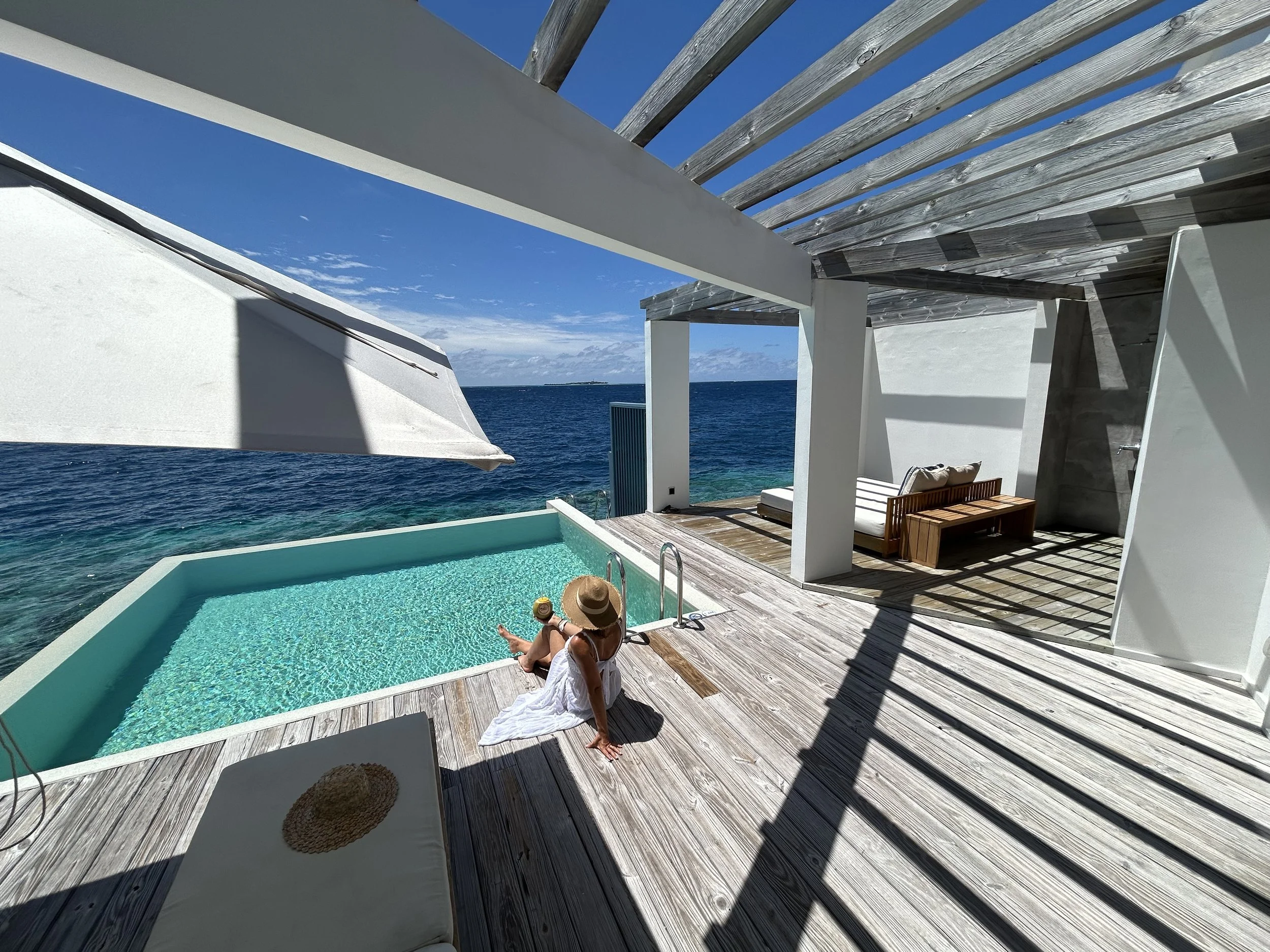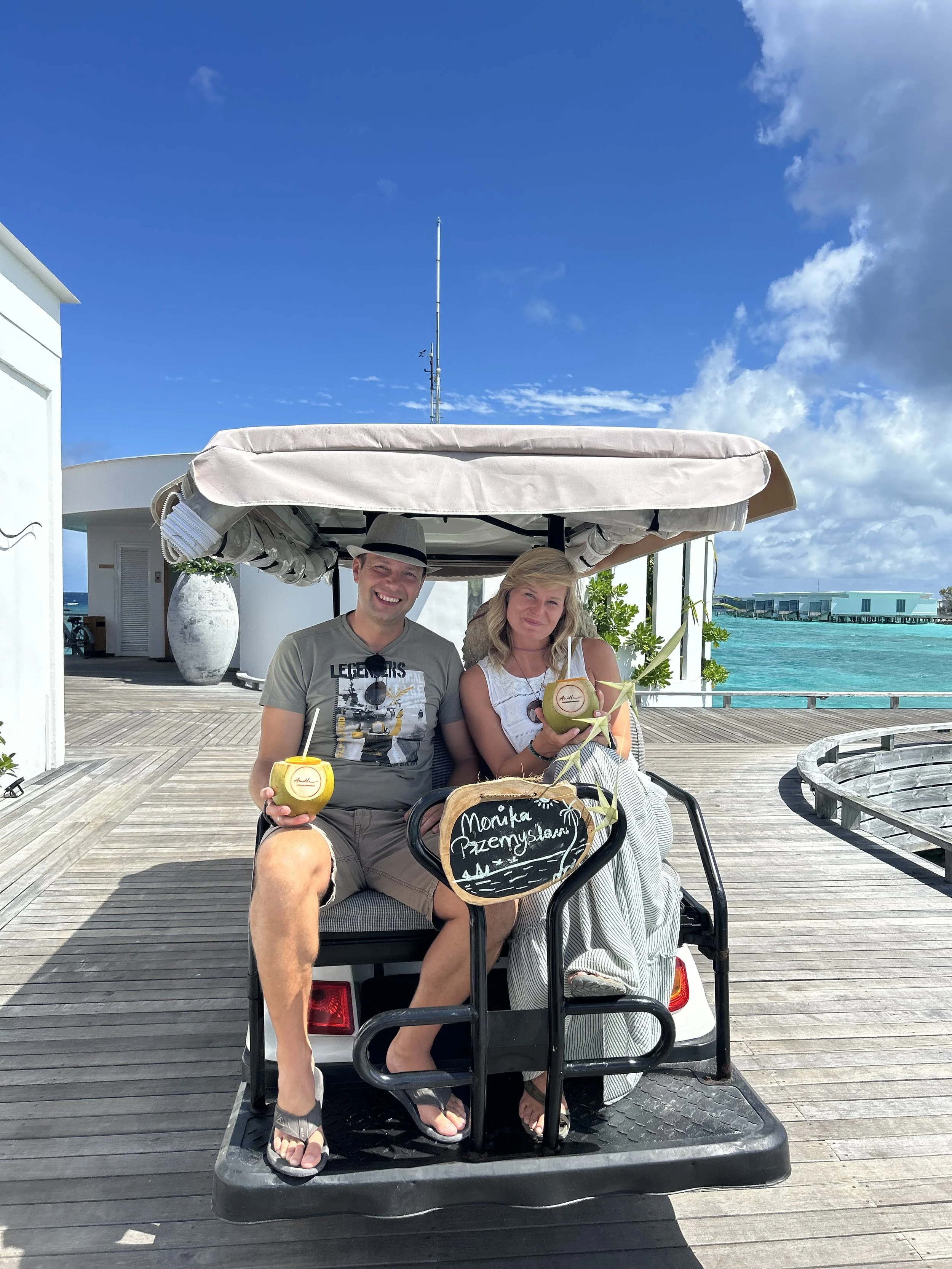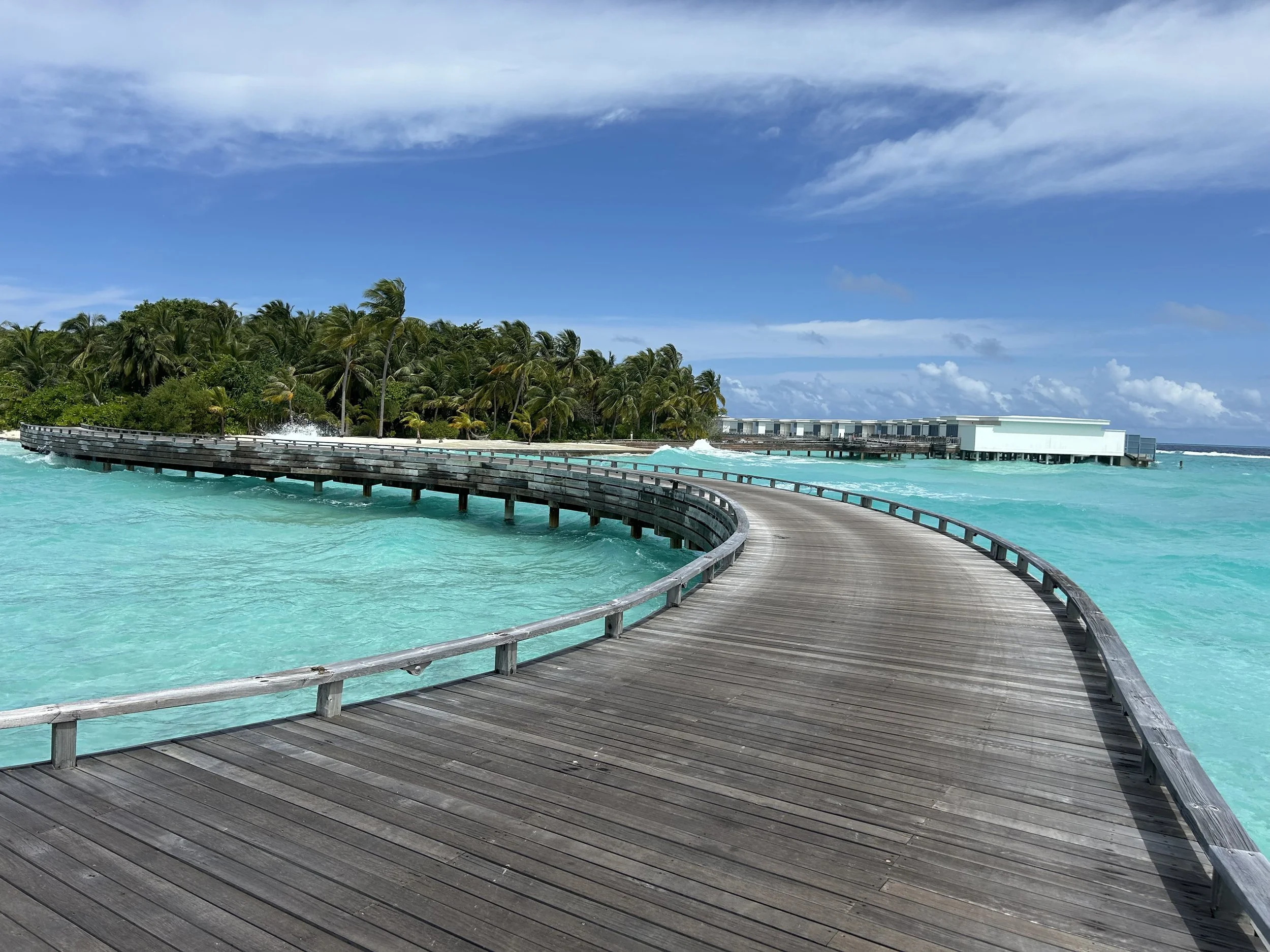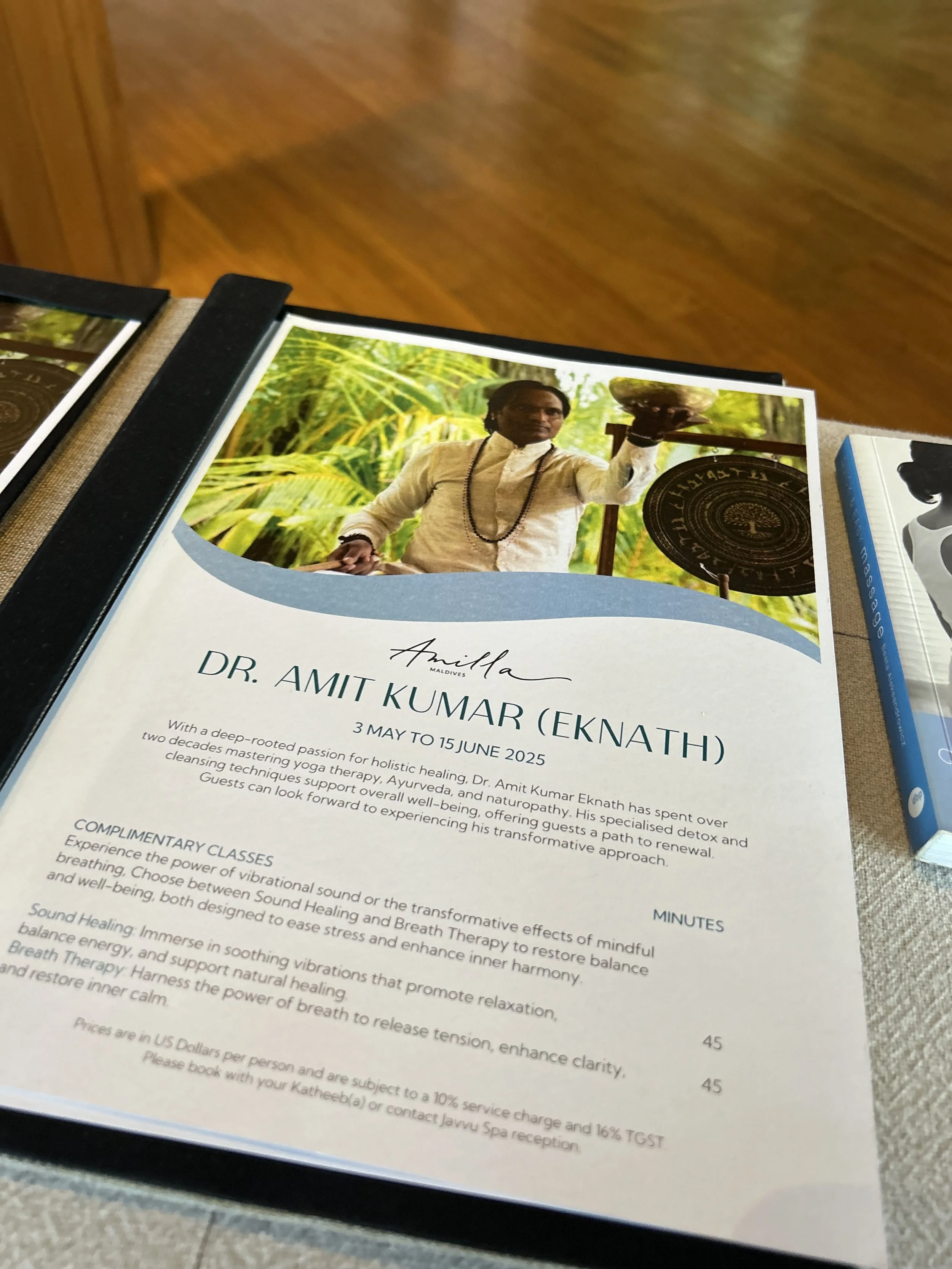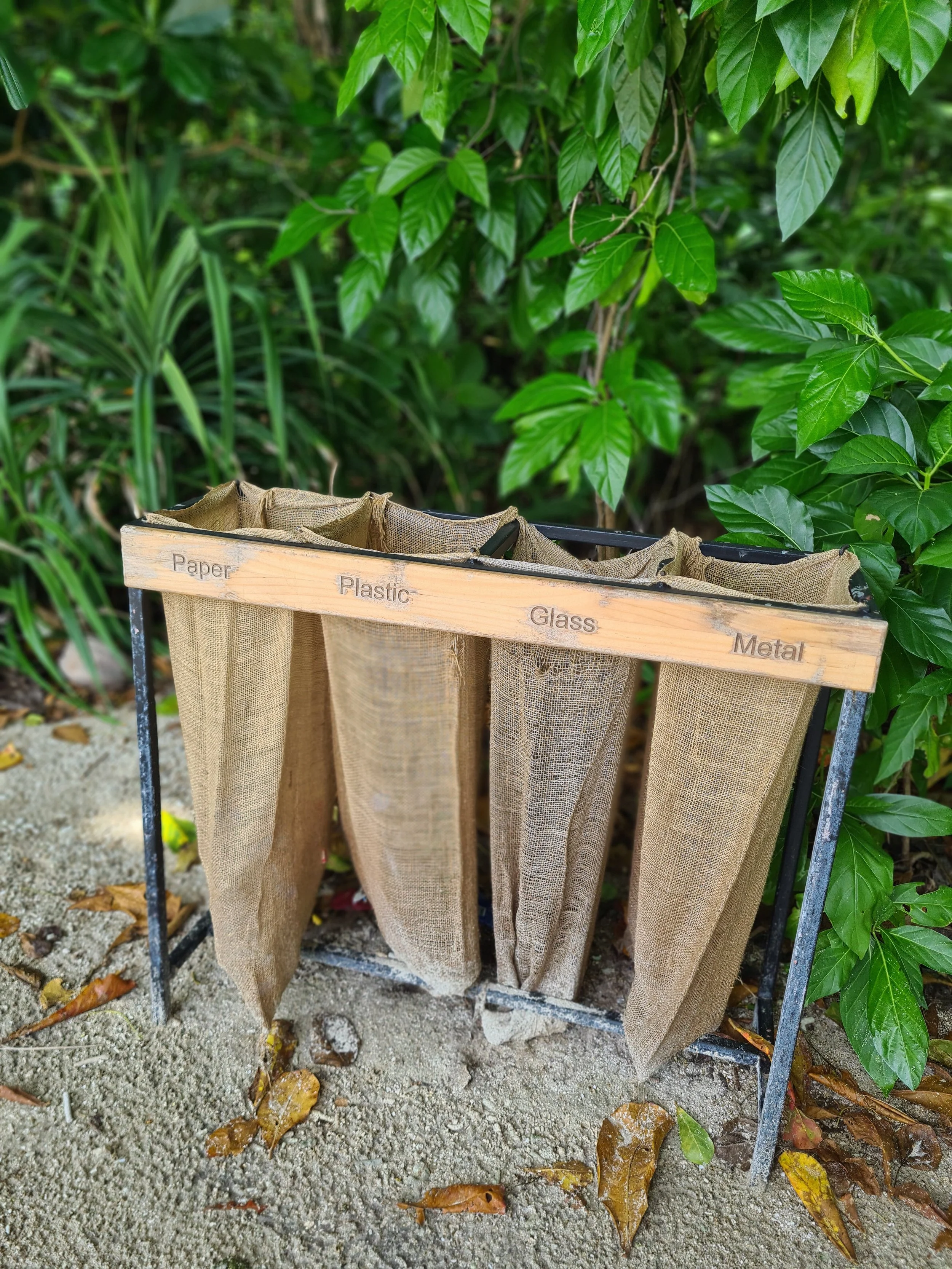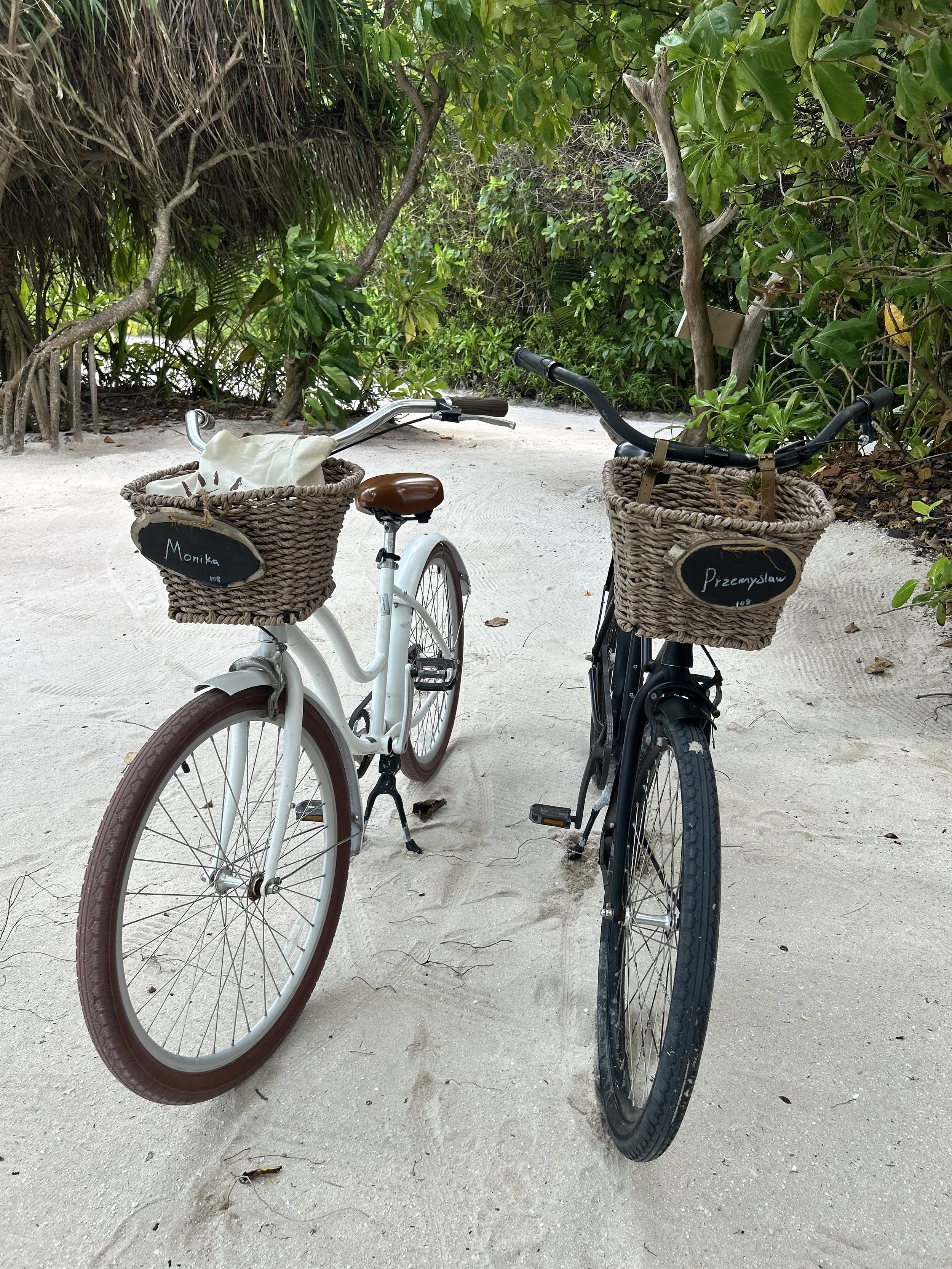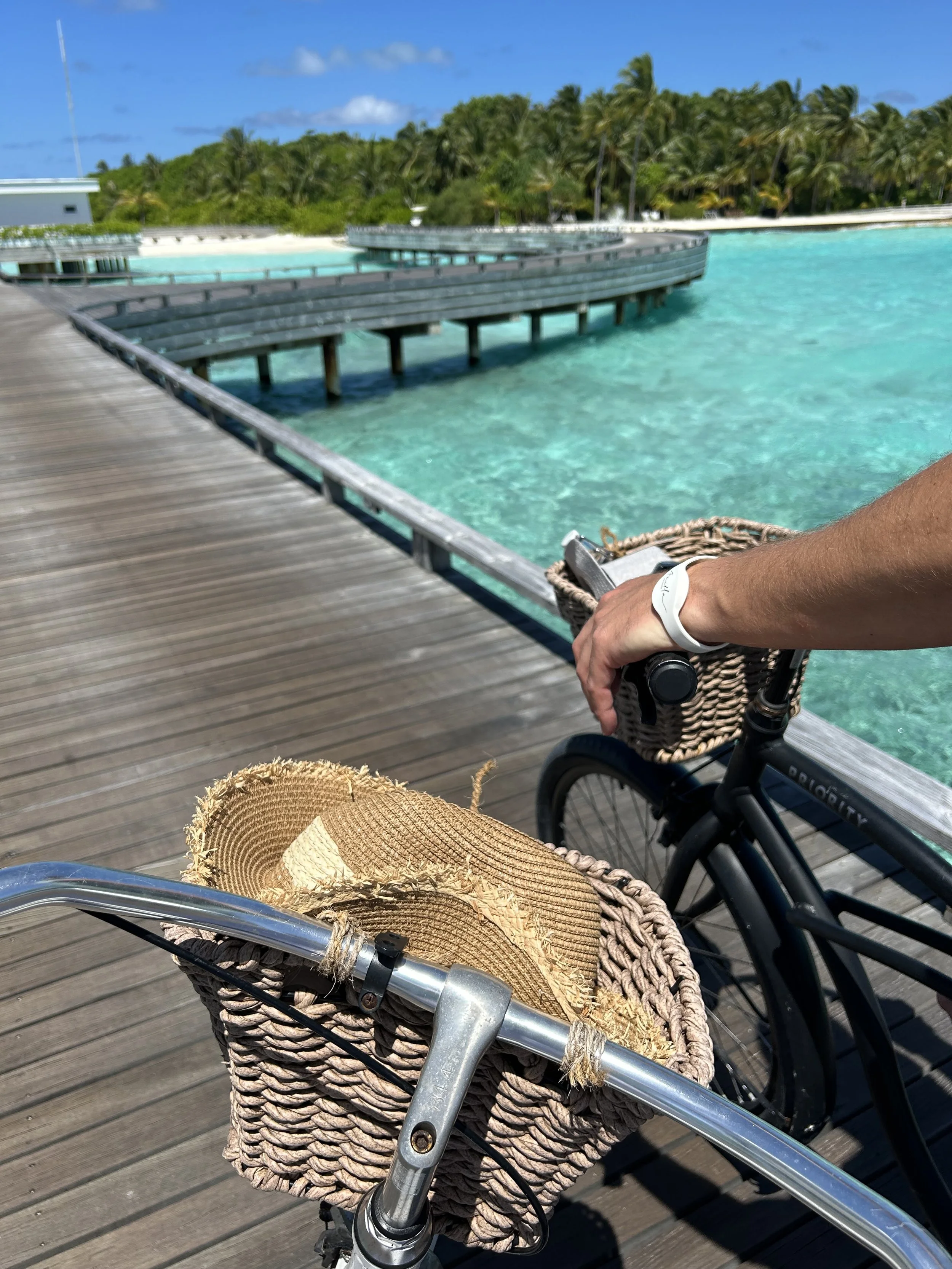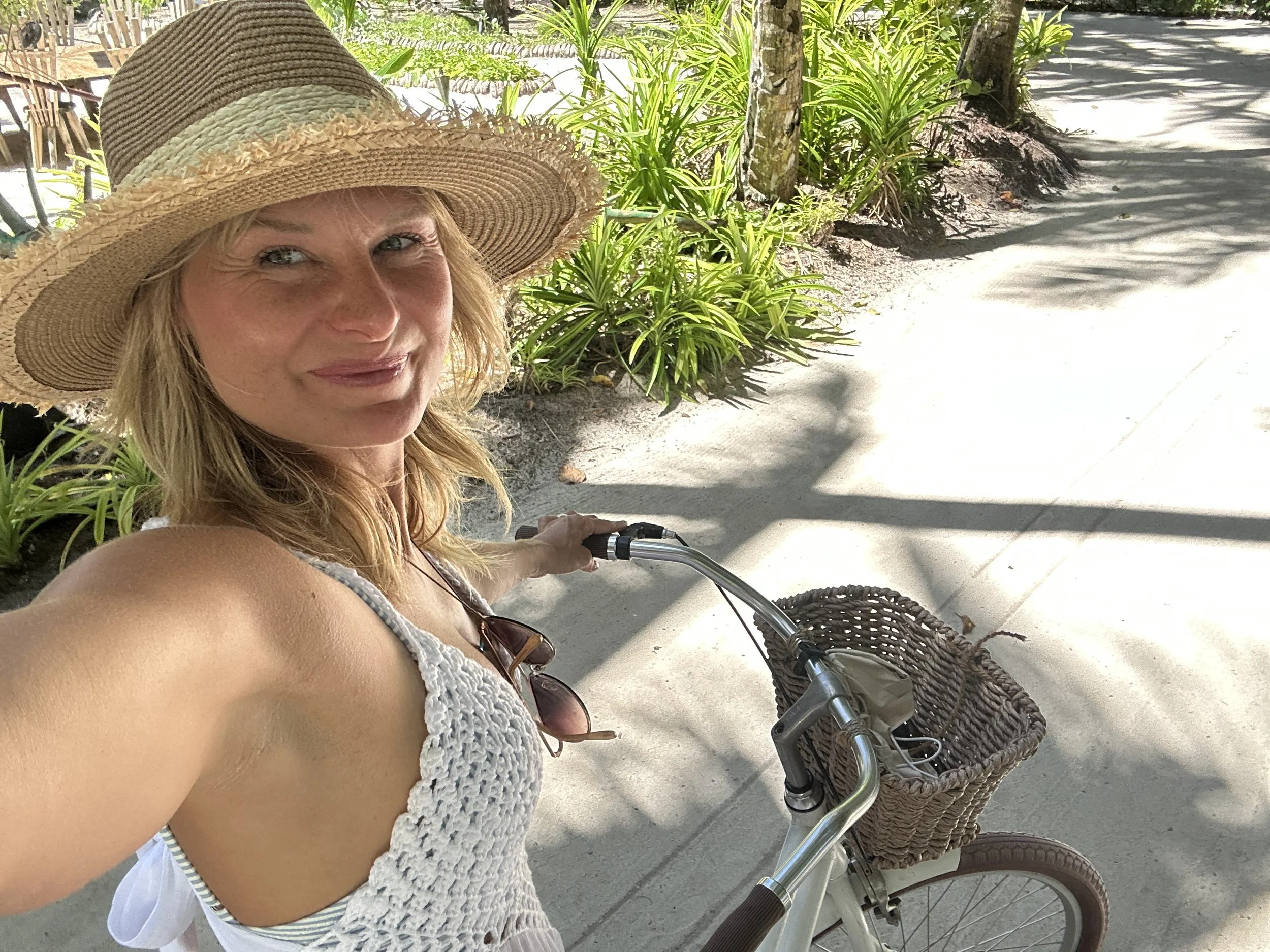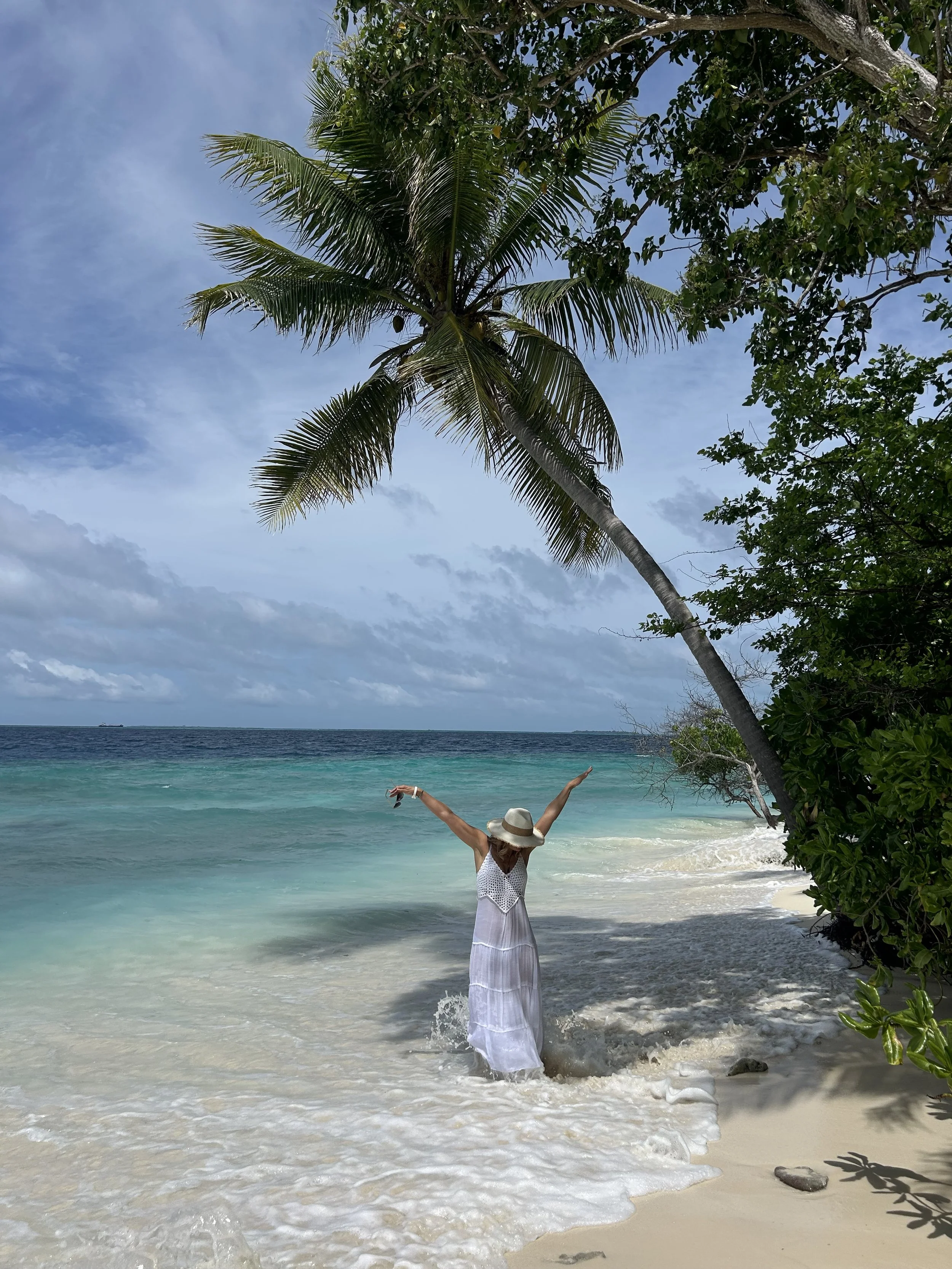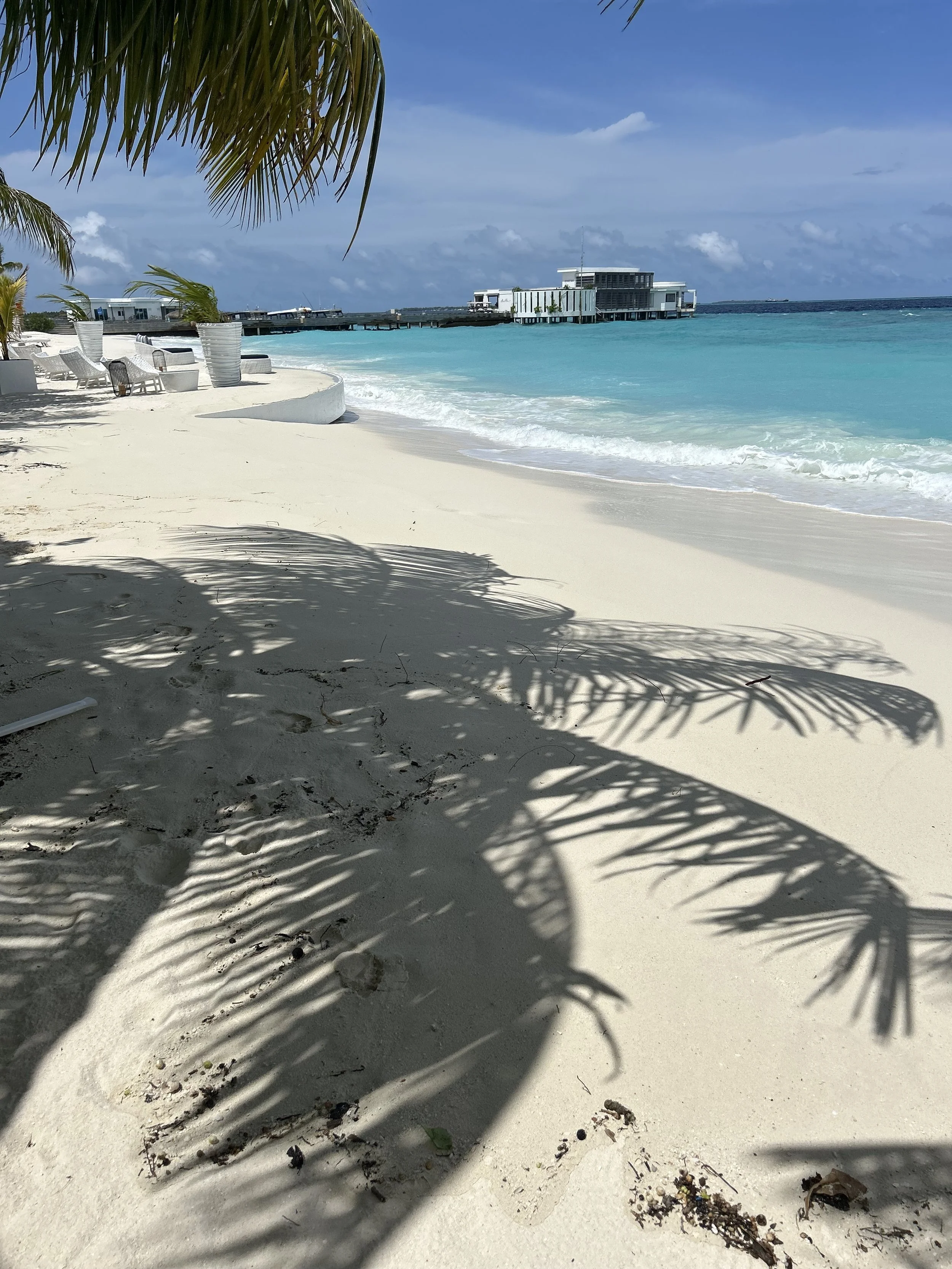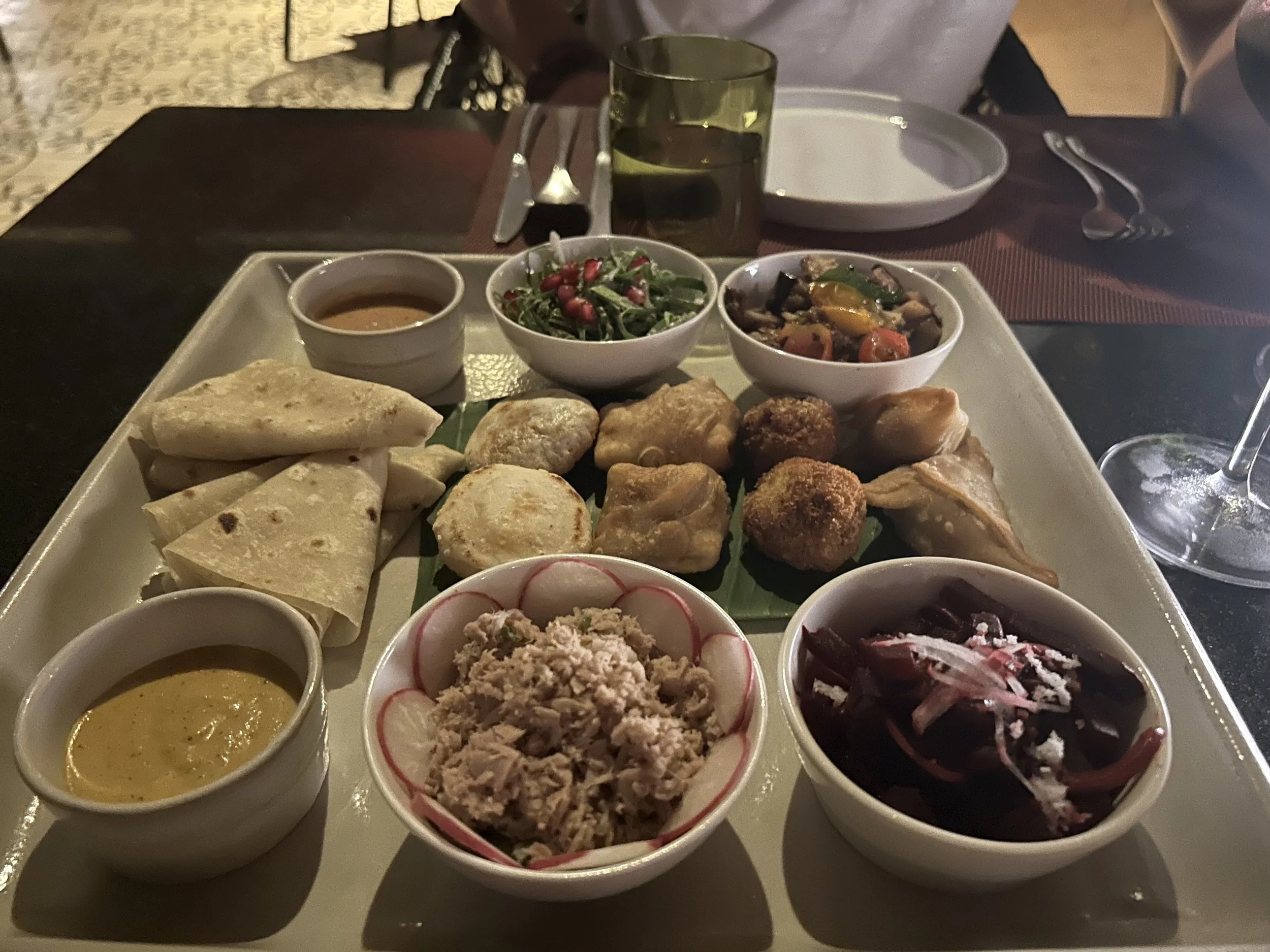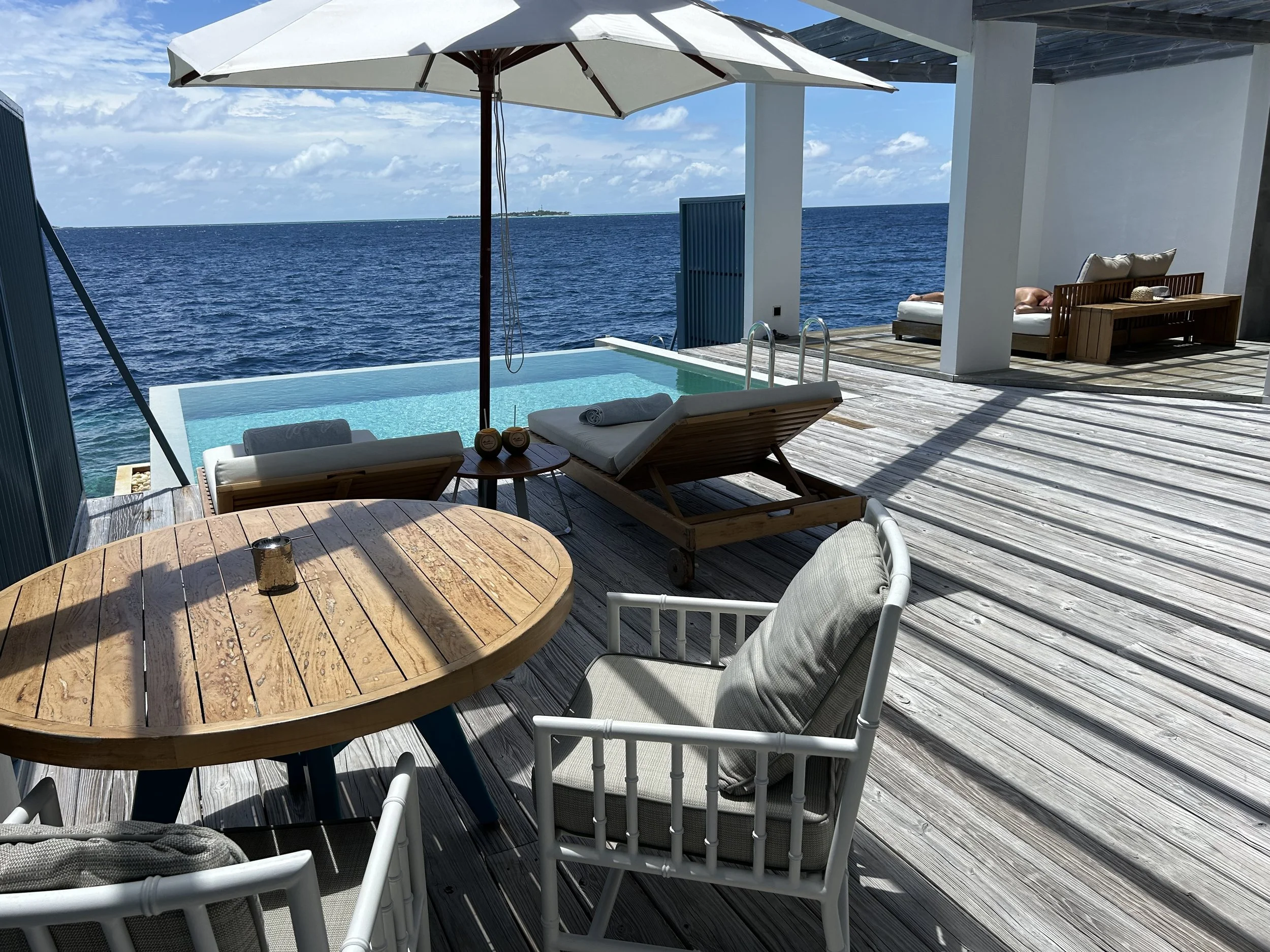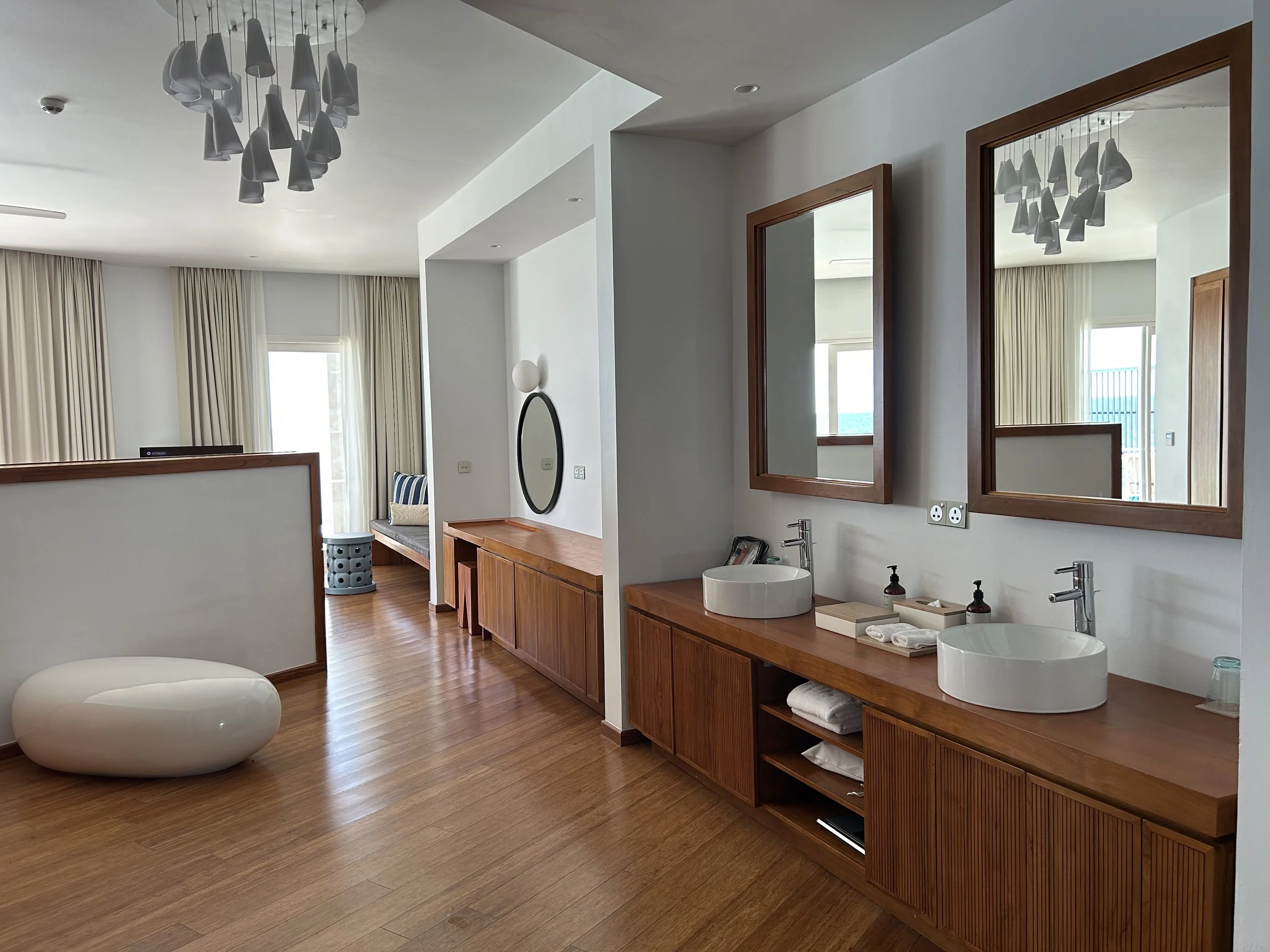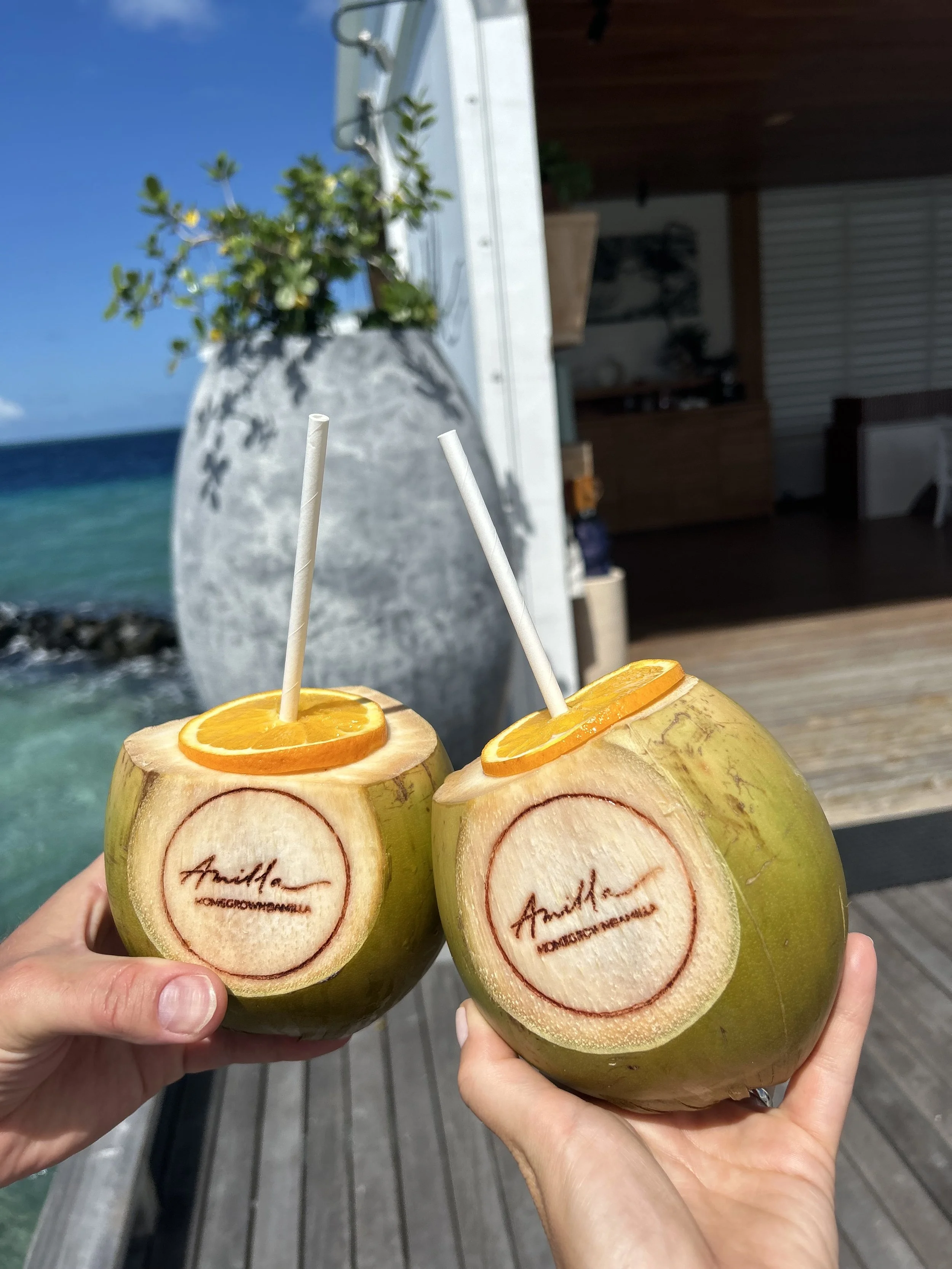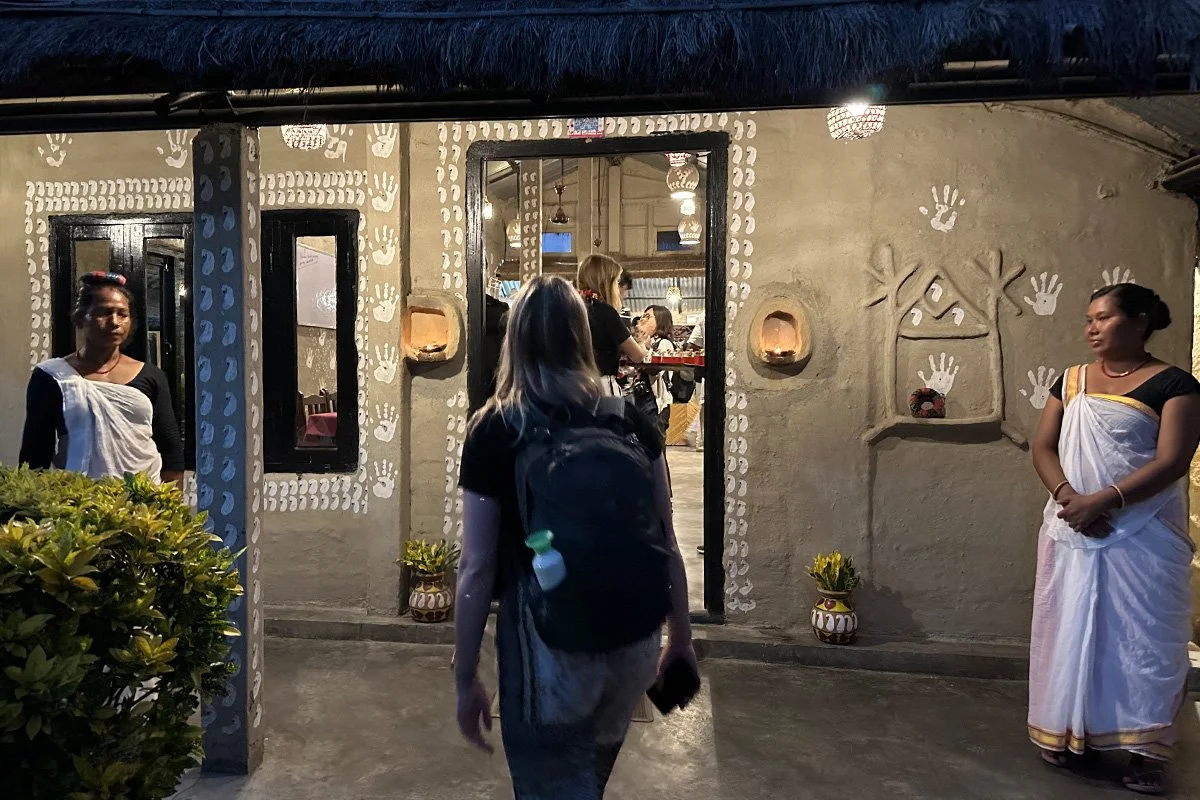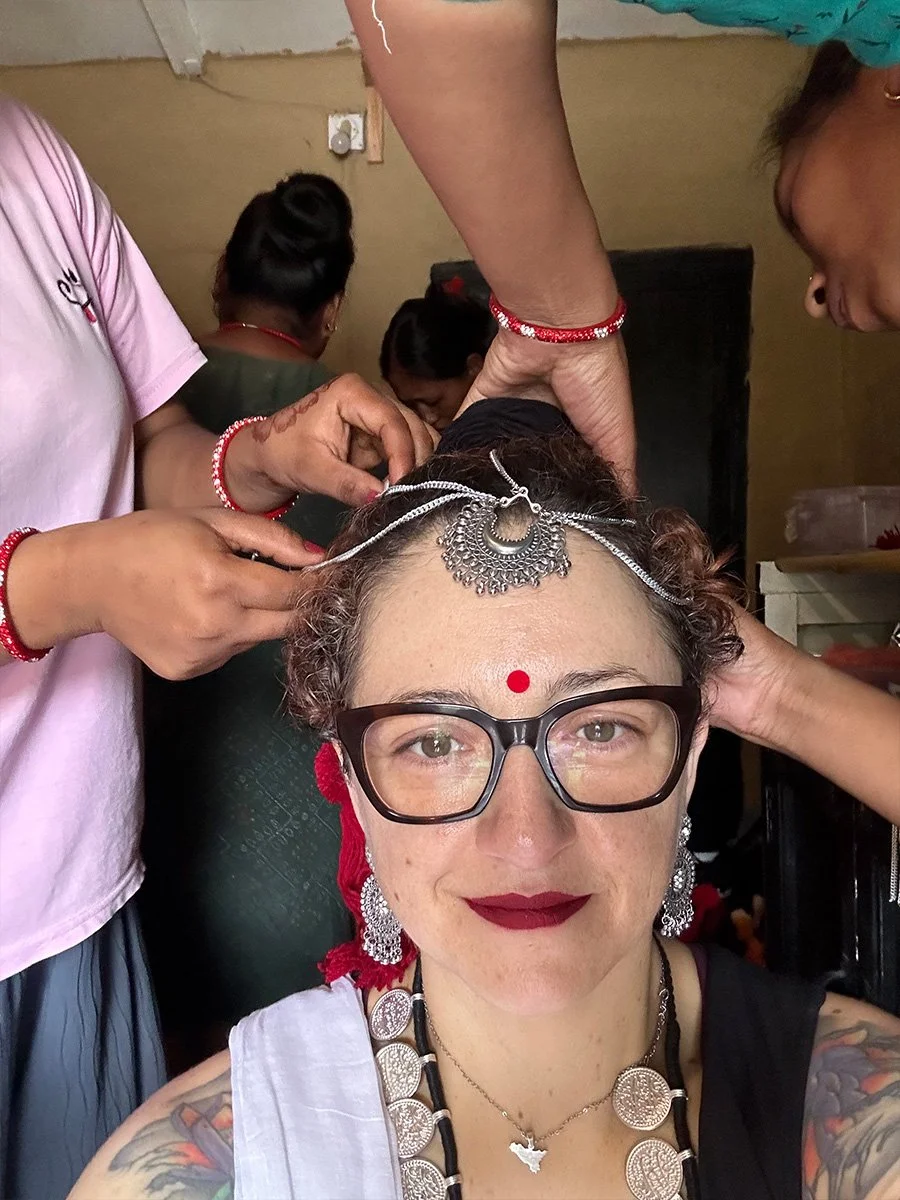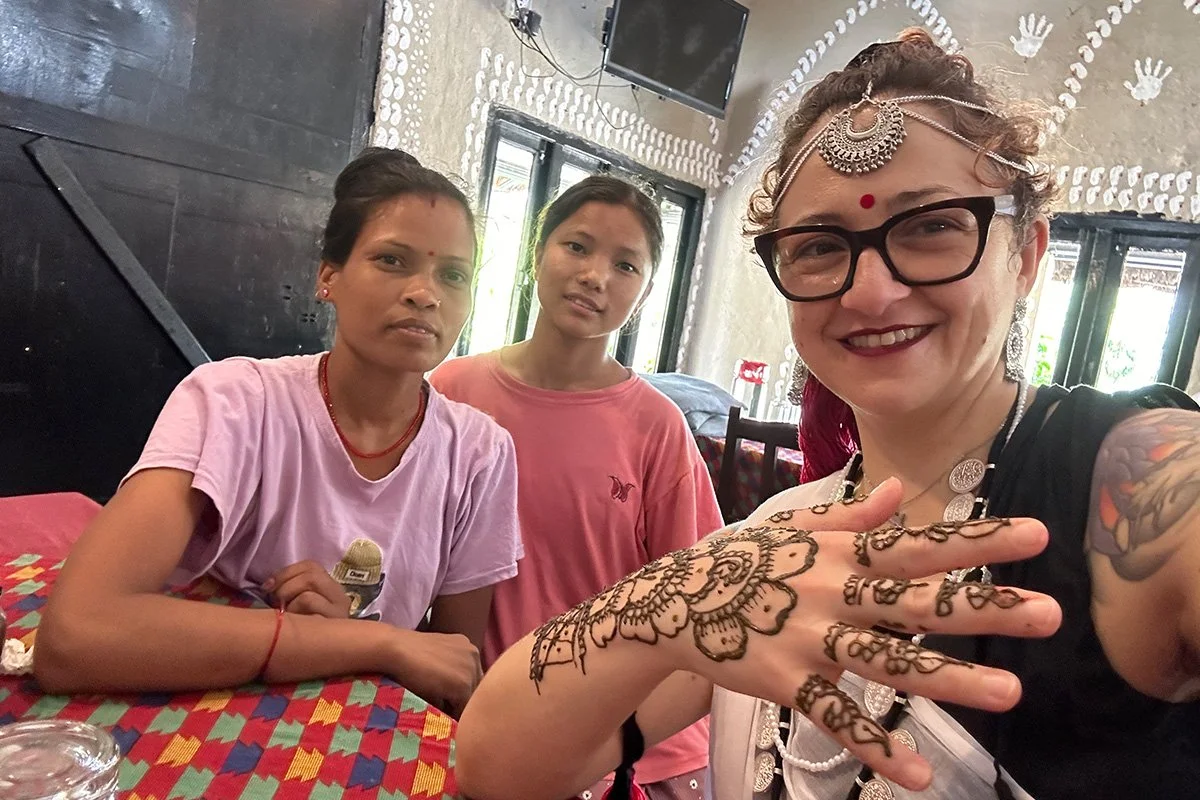A Journey Through Nature’s Wonderland Aboard La Pinta
Visiting the Galapagos has always been on my travel wish list and 2026 started well for me, as I set off, husband in tow, to discover this glorious archipelago of islands. Travel Matters has partnered with the Galapagos Conservation Trust over the years, and this had increased my hunger to visit the islands even more. I love being in nature so set sail with me, as I recount an unforgettable six-night adventure through the Galápagos Islands aboard the elegant La Pinta.
La Pinta Expedition Boat, Galapagos
La Pinta is owned by Metropolitan Touring, an Ecuadorian company celebrating 70 years of business. We have good relationships with their team, so it was an honour to work with them on my personal trip. My sea adventure in the Galapagos with them was 100% carbon neutral. Their carbon offsetting programme is in the forests of Ecuador’s Andean Choco bioregion. The programme conserves the threatened biodiverse forests and supports local communities in their transition to a more sustainable lifestyle. This journey was an immersion into one of the world’s most pristine natural habitats, teeming with unique wildlife and stunning volcanic landscapes.
Day 1: Arrival in Baltra and All Aboard
Touching down at Baltra Airport after a short flight from Quito on mainland Ecuador, I could feel the excitement building. After a seamless transfer to the quay, I was greeted by the warm and professional crew of La Pinta. The ship itself is mid-sized — just 24 cabins, spacious enough for comfort, yet small enough to foster an intimate atmosphere among fellow explorers from across the globe.
Once aboard, we were welcomed with drinks before dinner and a safety briefing, before setting sail towards our first destination. The anticipation was palpable as the dramatic coastlines of the Galápagos came into view.
Day 2: Punta Vicente Roca & Fernandina — Western Wonders Begin
Our first full day exploring the western islands began with an early panga ride along the dramatic cliffs of Punta Vicente Roca, on the northern coast of Isabela. This area, carved by ancient volcanic forces, is a haven for marine life. As we glided across the water, playful sea lions darted beneath us while blue-footed boobies perched confidently on rocky ledges. The cool waters of the Cromwell Current make this one of the richest snorkelling sites in the Galápagos, and slipping into the water felt like entering another world. Sea turtles drifted gracefully past us, seemingly unbothered by our presence. Baby whale sharks bask in the shallow waters. If you are not keen on snorkelling, there is the option to travel in the glass bottom boat.
In the afternoon, we made our way to Fernandina, the youngest and most pristine of all the islands. Stepping ashore at Punta Espinoza felt like landing on a freshly cooled volcanic crust. Marine iguanas were everywhere warming their scaly bodies in the sun. Watching them sneeze out excess salt water was both comical and fascinating. Here we also encountered flightless cormorants, with their stubby wings and intense blue eyes, found only in this remote corner of the world. Watching them under water was incredible.
Day 3: Urbina Bay & Tagus Cove — Wildlife Encounters on Land and Sea
The western itinerary continued to impress as we landed at Urbina Bay. This area was uplifted from the sea in 1954, creating a flat expanse now roamed by giant tortoises and land iguanas. Our hike through the arid landscape offered encounters with both — enormous tortoises slowly lumbering through the brush, and strikingly coloured yellow-and-orange iguanas basking beside the trail.
In the afternoon, the ship repositioned to Tagus Cove, a sheltered harbour historically favoured by whalers and pirates. The cliffs are still etched with old graffiti from 19th‑century visitors, fascinating to imagine their presence here. Here, guests were given the option to kayak along the lava walls or snorkel. We were lucky to see a solitary penguin zip through the water like an aquatic arrow, and a real highlight for me was to snorkel with a couple of manta rays. These incredible creatures lured me deeper to swim with them. We spotted Galápagos hawks circling overhead. A hike to the lookout over Darwin Lake (called this despite him never actually being there) rewarded us with sweeping views over the cove and the seahorse-shaped silhouette of Isabela Island.
Rabida
Day 4: Rabida Island
We disembarked at Rabida island with its red coloured beach. Plenty of land iguanas, sealions basking on the sand and for bird enthusiasts, yellow warblers, Darwin finches, flamingos, frigate birds – the Great and Magnificent. The male red throat pouches are a sight to see.
In the afternoon we set sail to Santa Cruz Island to visit the area known as Dragon Hill. Our walk across the hardened lava flows led us to a pool inhabited by flamingos, a beautiful contrast against the volcanic backdrop. The diversity of ecosystems packed into a single afternoon was astonishing and highlighted just how special the Galápagos truly is.
Day 5: Santa Cruz — Giant Tortoises and Conservation in Action
Reaching the island of Santa Cruz, we spent the morning visiting the Charles Darwin Research Station. Seeing the conservation work up close—especially the breeding programmes for endangered giant tortoise species—was deeply inspiring. It felt particularly meaningful given Travel Matters’ long‑standing support of Galápagos Conservation Trust initiatives.
Lunch was taken at Metropolitan Touring’s hotel Finch Bay. A wonderful beachfront hotel on Santa Cruz for those who prefer to stay on land and arrange land and sea adventures from there.
In the highlands, we walked among giant tortoises roaming freely in their natural habitat. There is something humbling about standing beside a creature that can live for more than a century, moving at its own deliberate pace through lush greenery.
Giant tortoises in the wild
Day 6: Floreana — Black Sands and Curious Sea Lions
Our final full day was spent on Floreana, one of the archipelago’s most intriguing islands. We walked to Post Office Bay to visit the historic barrel where people have dropped postcards for over two centuries like a very old Post Office service.
At Champion Islet, we snorkelled in what would become one of the highlights of the entire journey. Curious sea lions swirled around us in joyful loops, blowing bubbles and playing as if welcoming us into their underwater world. The water visibility was so clear, I wanted to stay there forever with the sea lions. Truly it was a remarkable experience and a memory that will last with me forever.
Day 7: Final Sunset & Farewell
Sunset in Galapagos
As La Pinta gently made her way back toward Baltra, we gathered on deck at sunset for final farewells and watched Galapagos sharks tracking the boat. Incredible. Each moment from the previous six nights felt like a treasured snapshot — encounters with wildlife found nowhere else on earth, landscapes shaped by fire and time, and the unforgettable warmth of the crew who made the journey so special.
The western itinerary of the Galápagos is wild, remote, and full of surprises — a place where nature still feels untouched and profoundly alive.
Karen travelled with Metropolitan Touring to Galapagos. Thanks to the naturalists and the crew. Photos have been taken by Karen as well as other guests. Please make your enquiry with us for more information about Galapagos. Enquiry today on Tel 0208 675 7878 or email info@travelmatters.co.uk

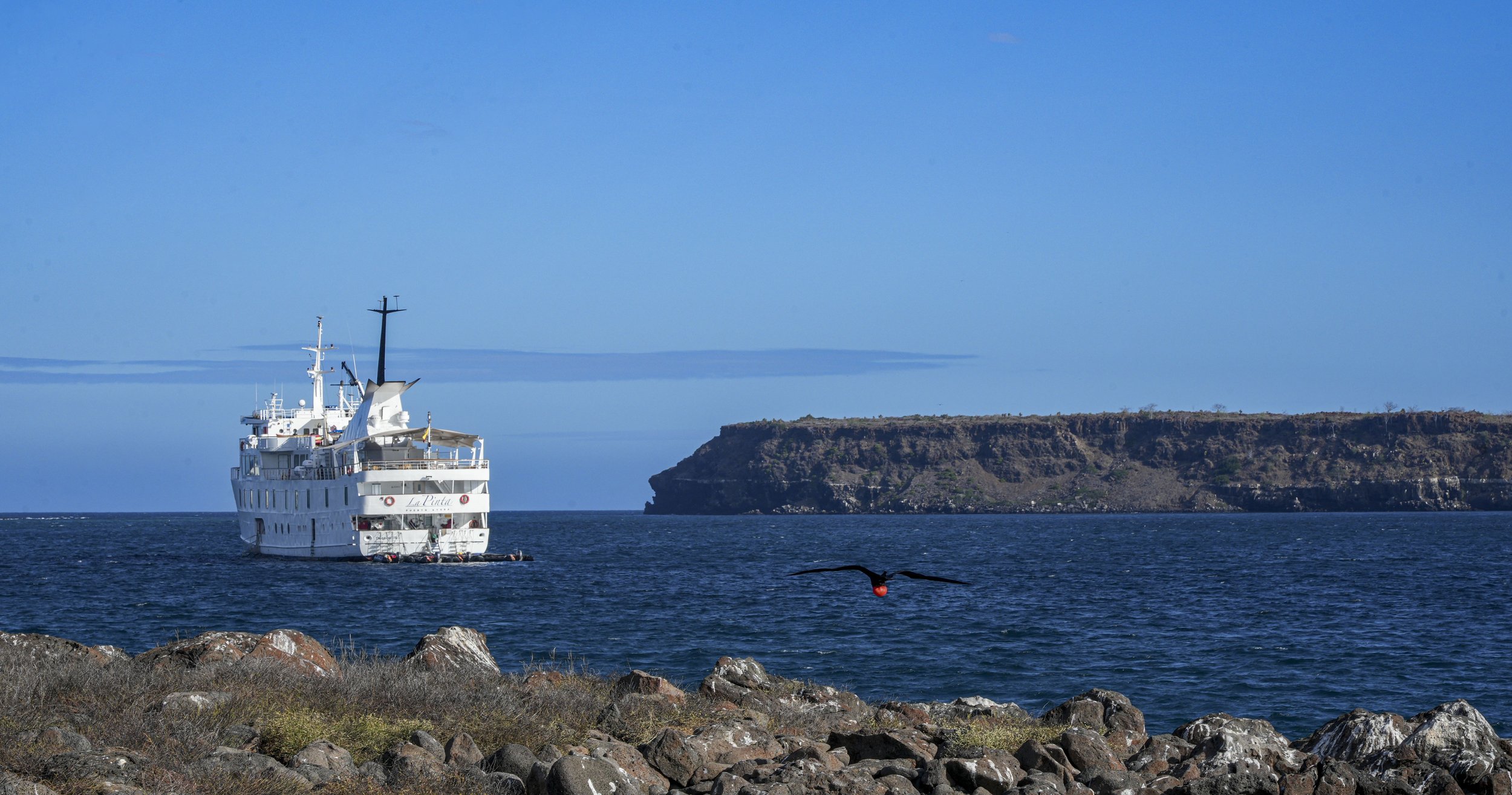

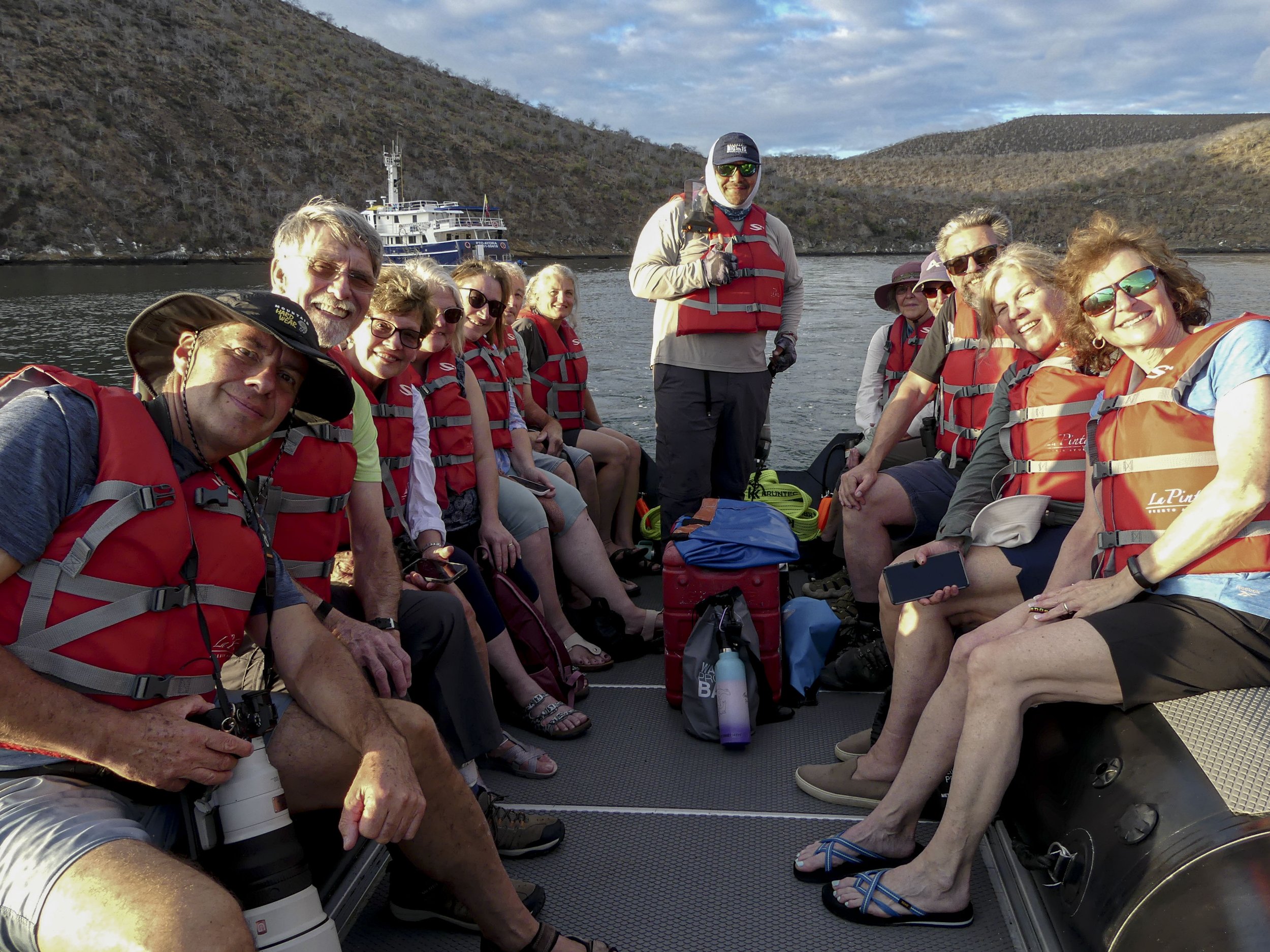
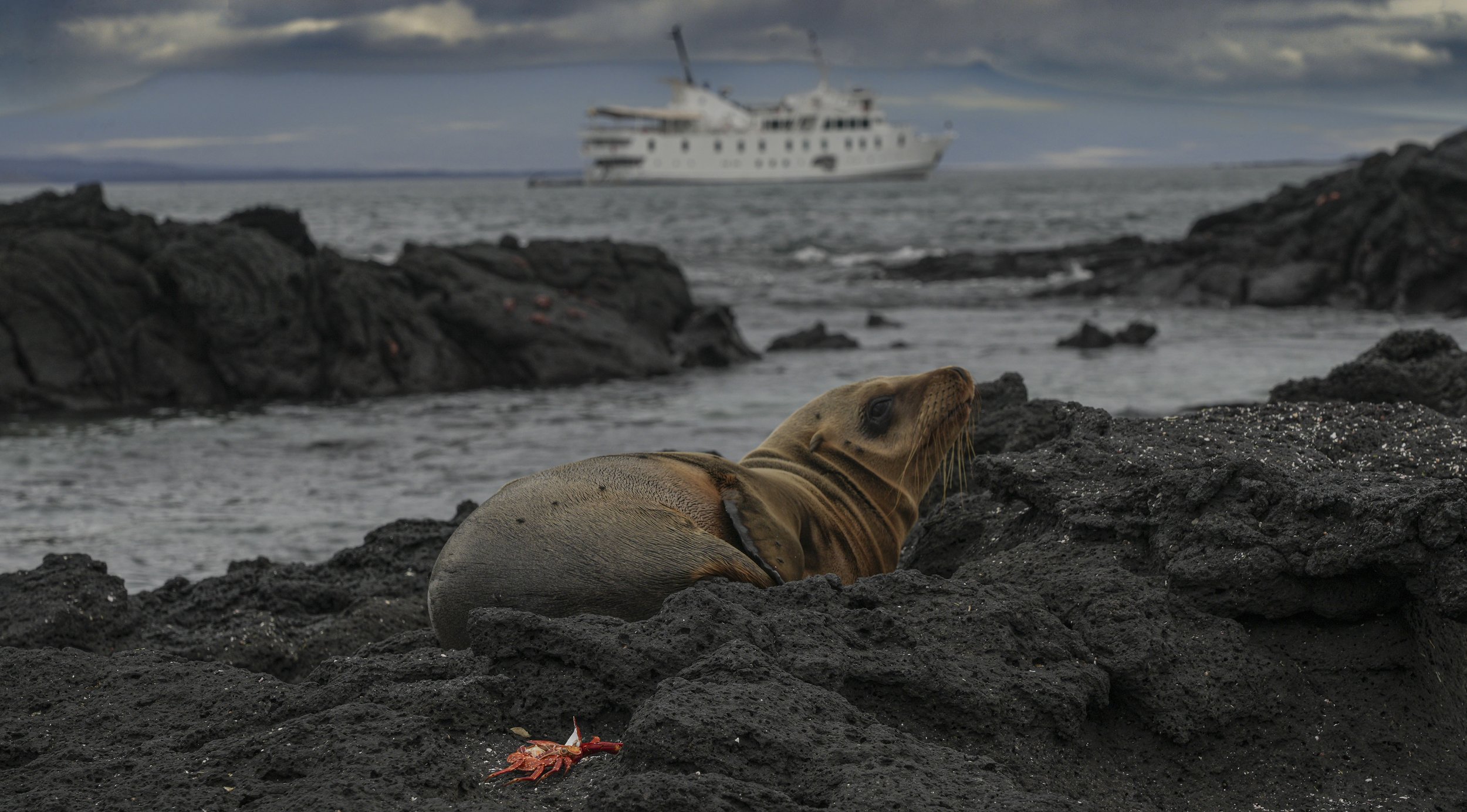
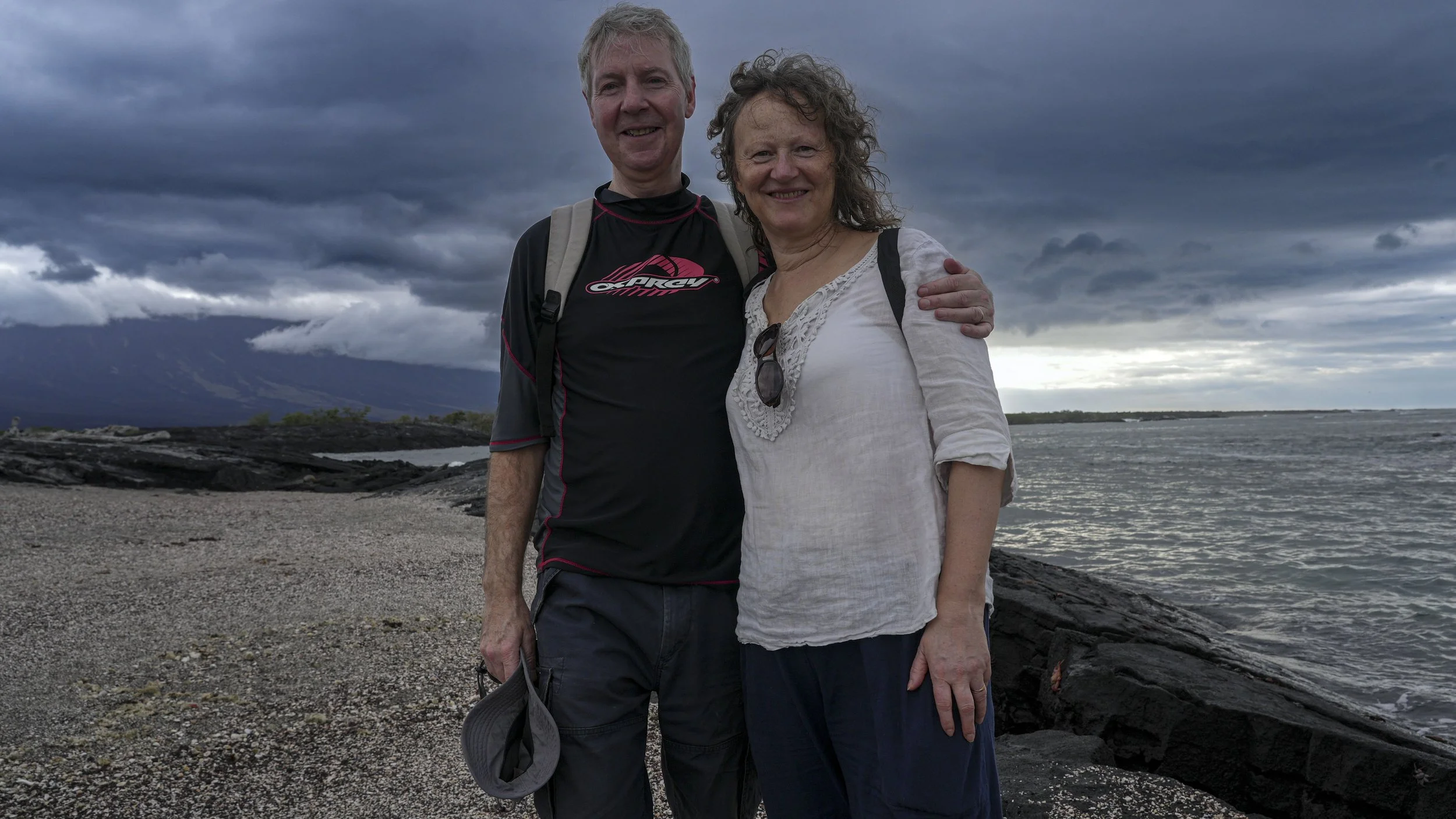
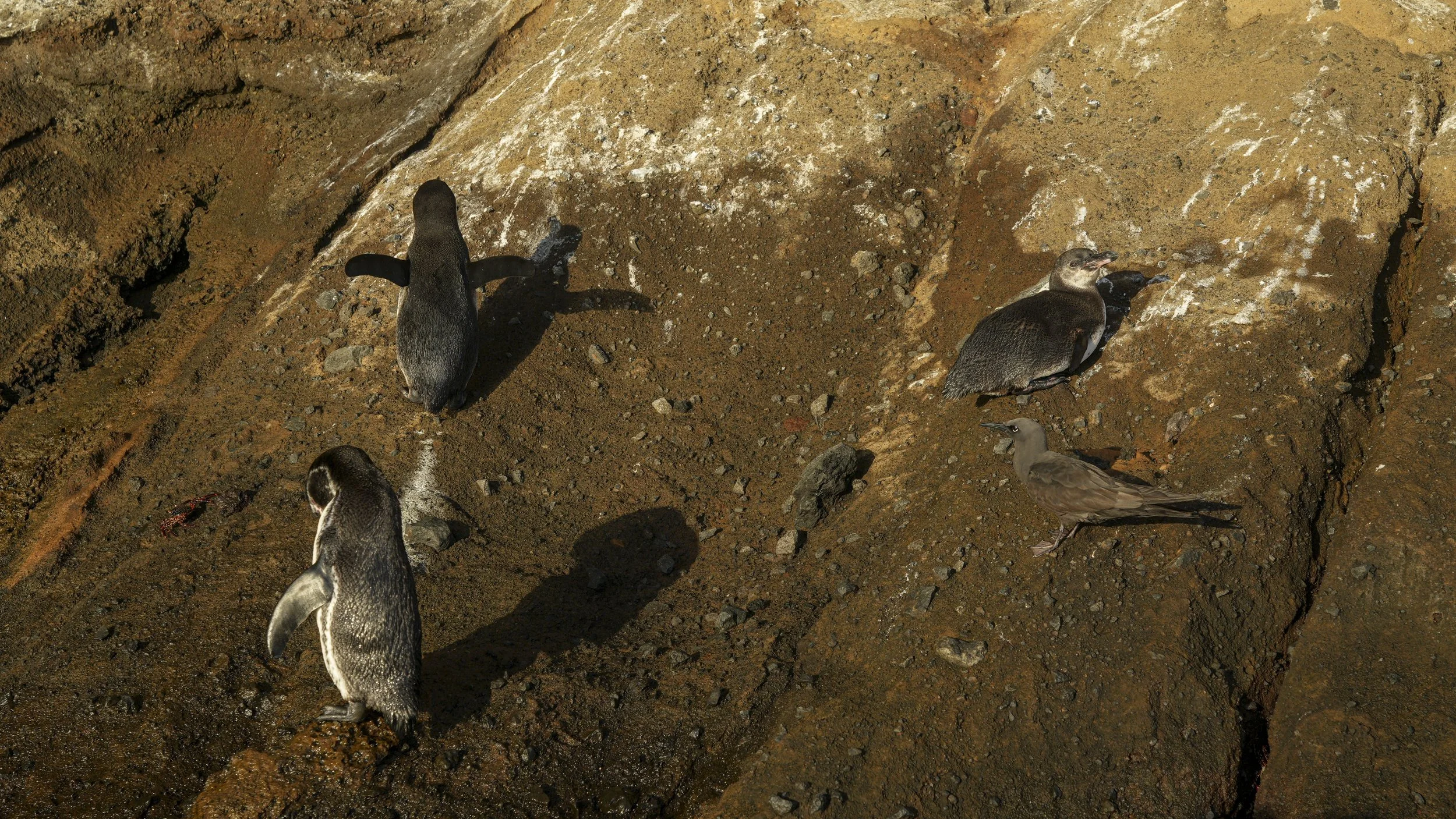


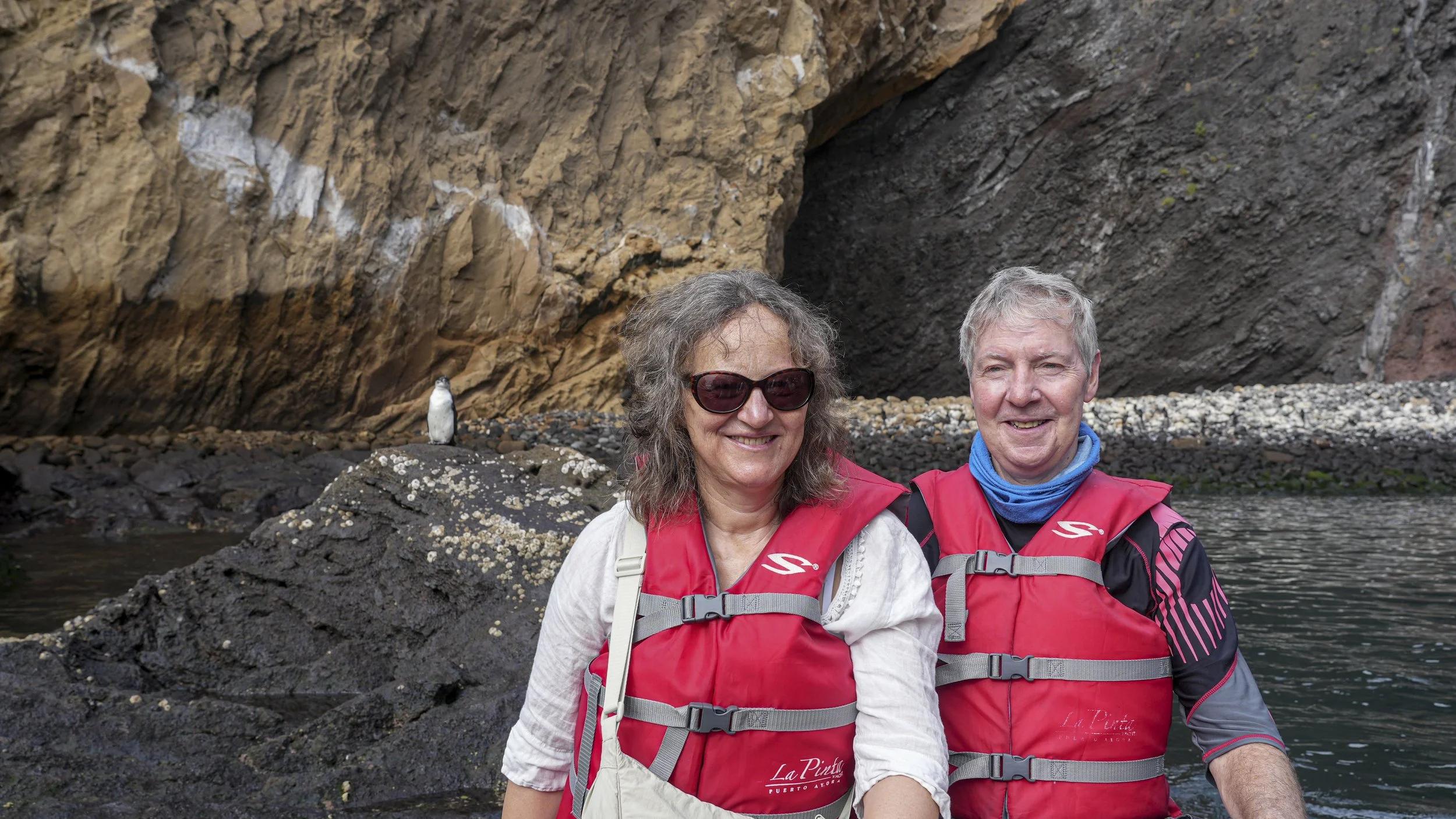
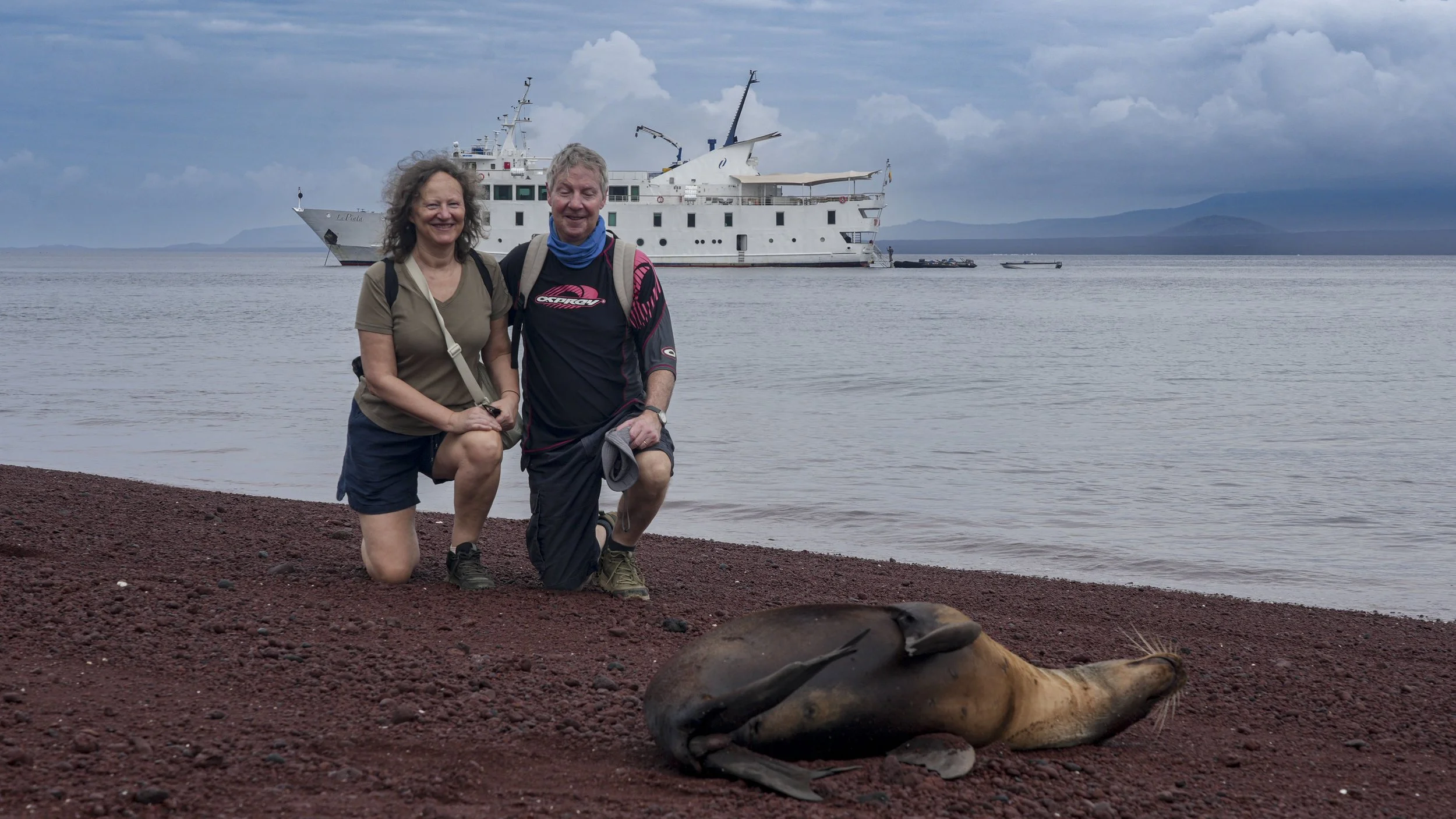

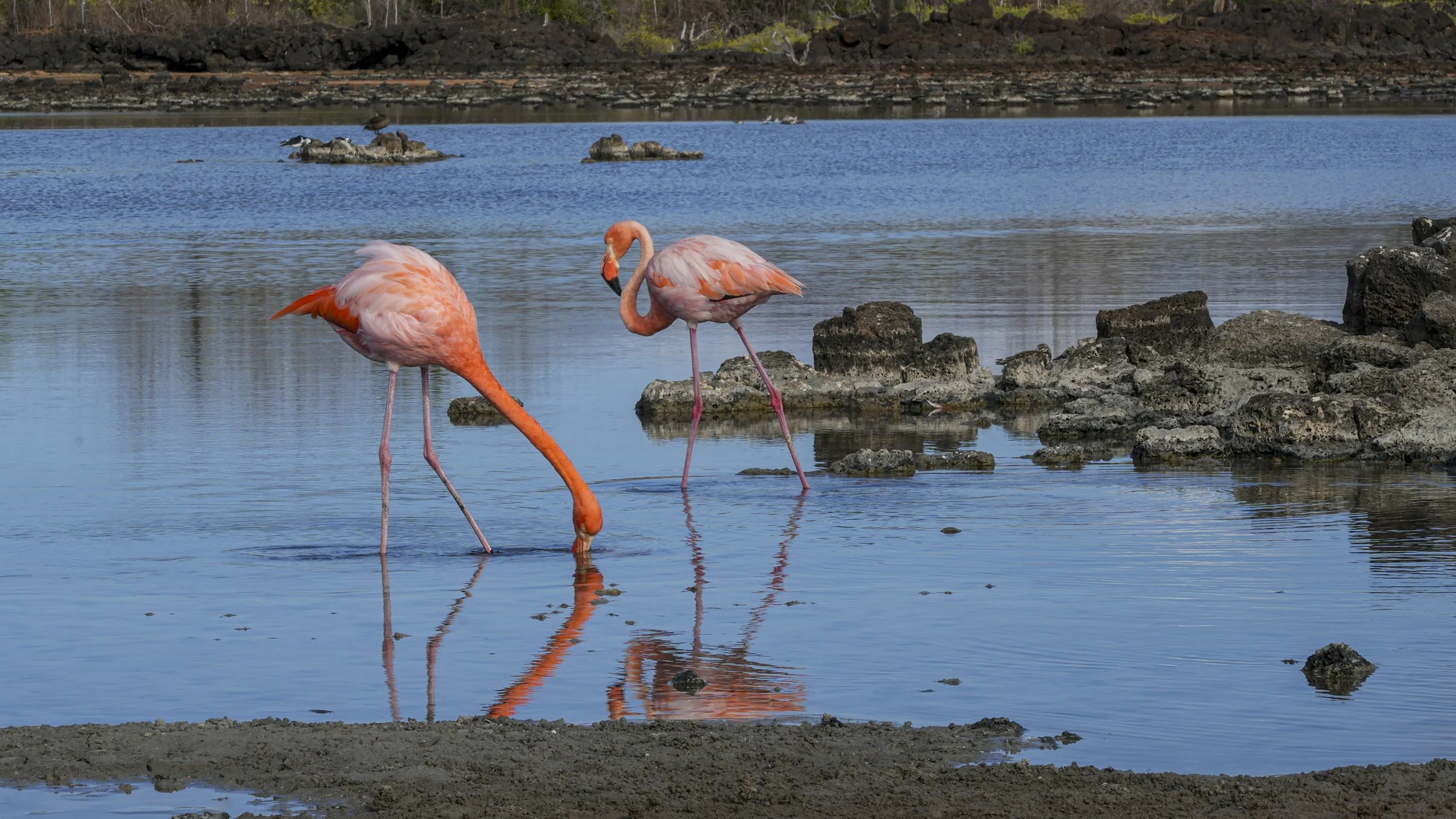
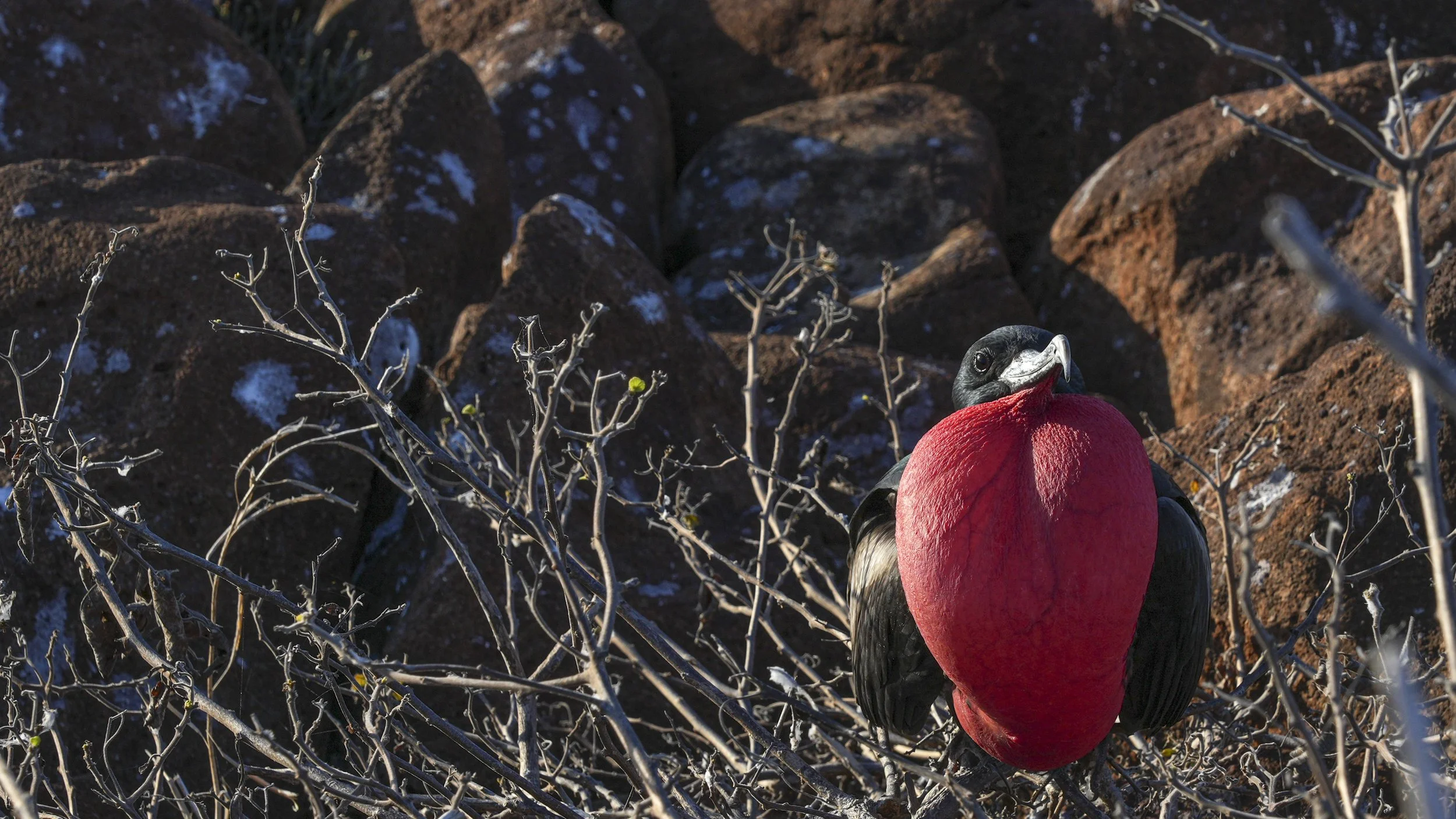


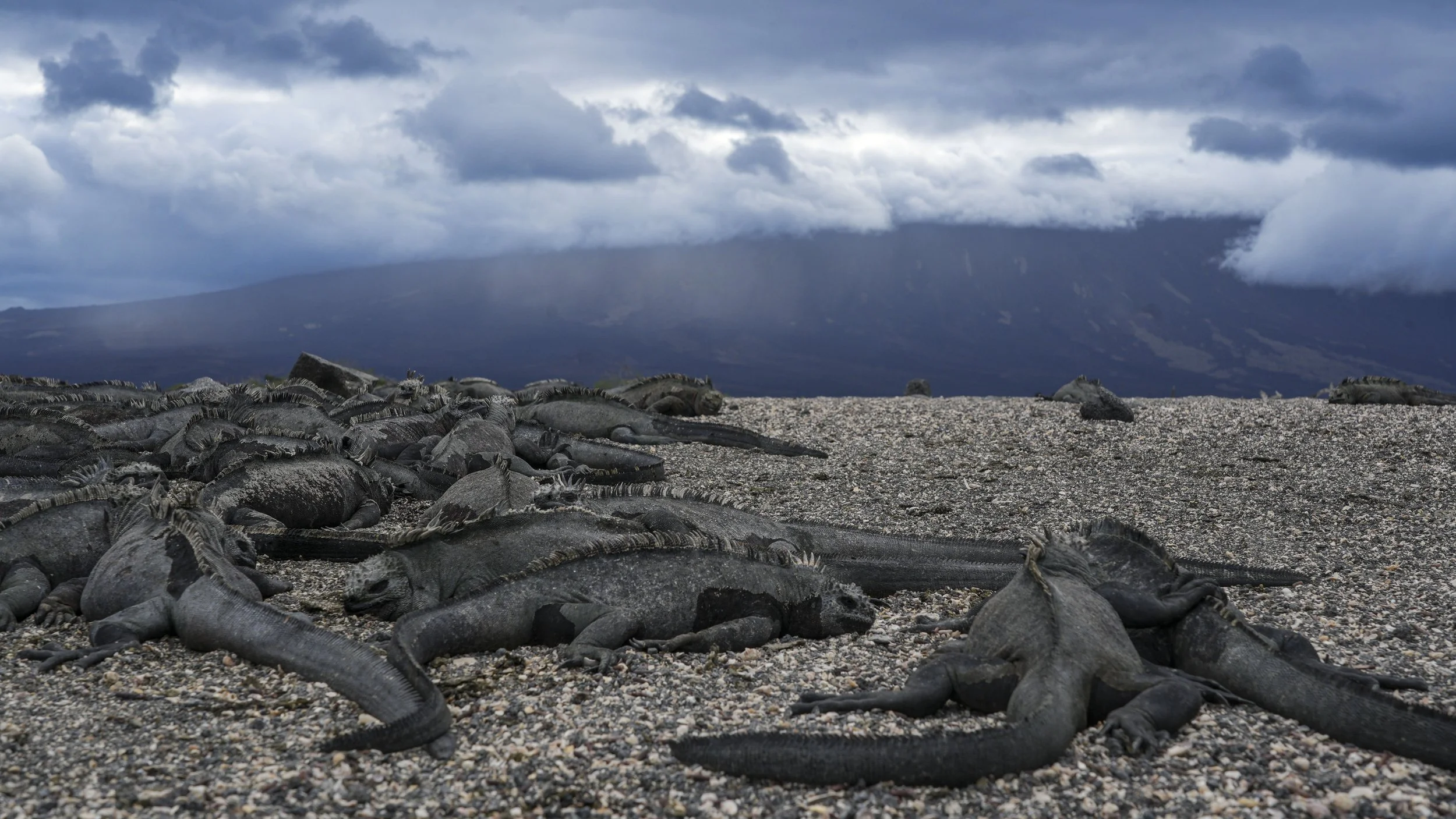
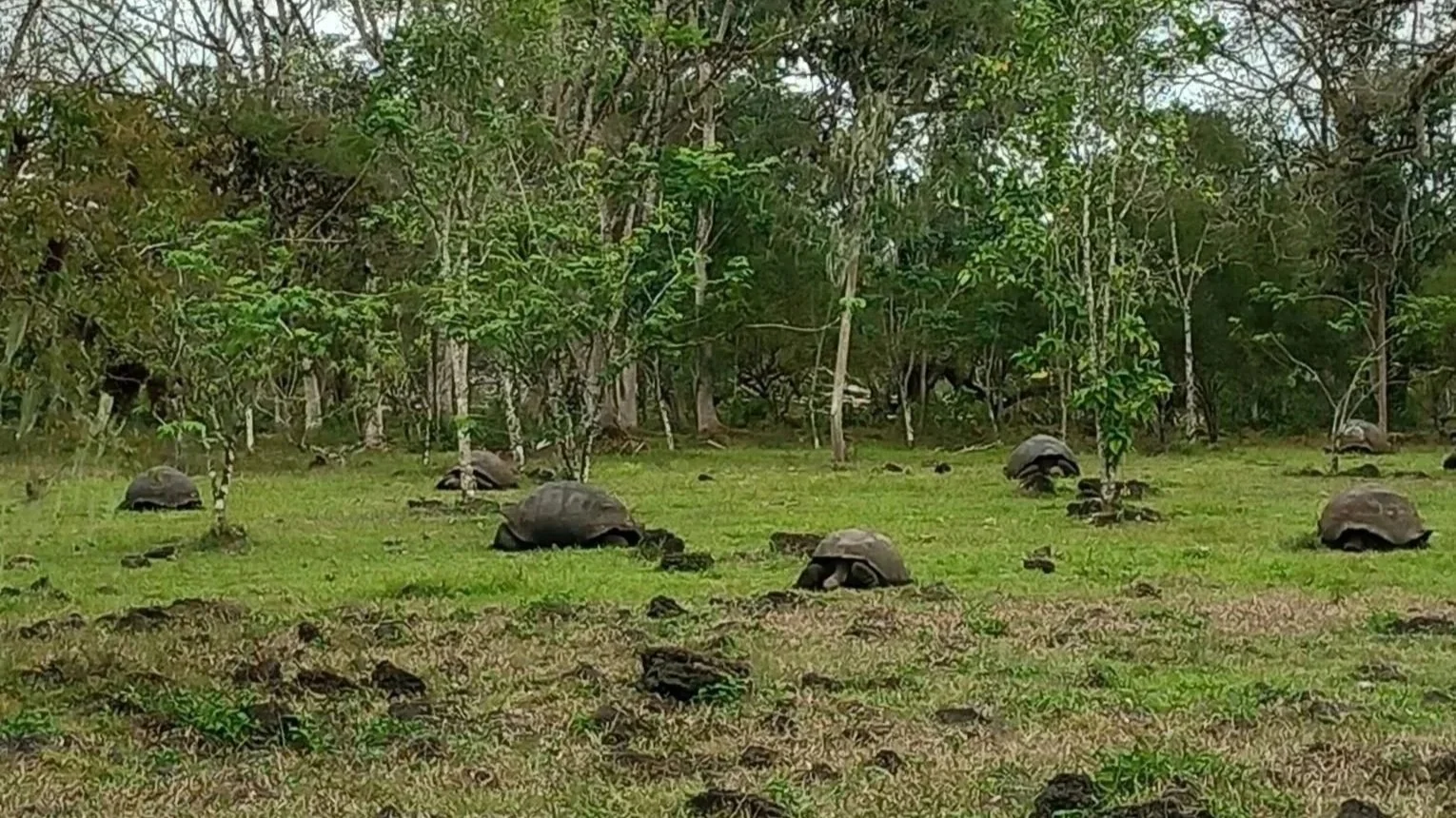

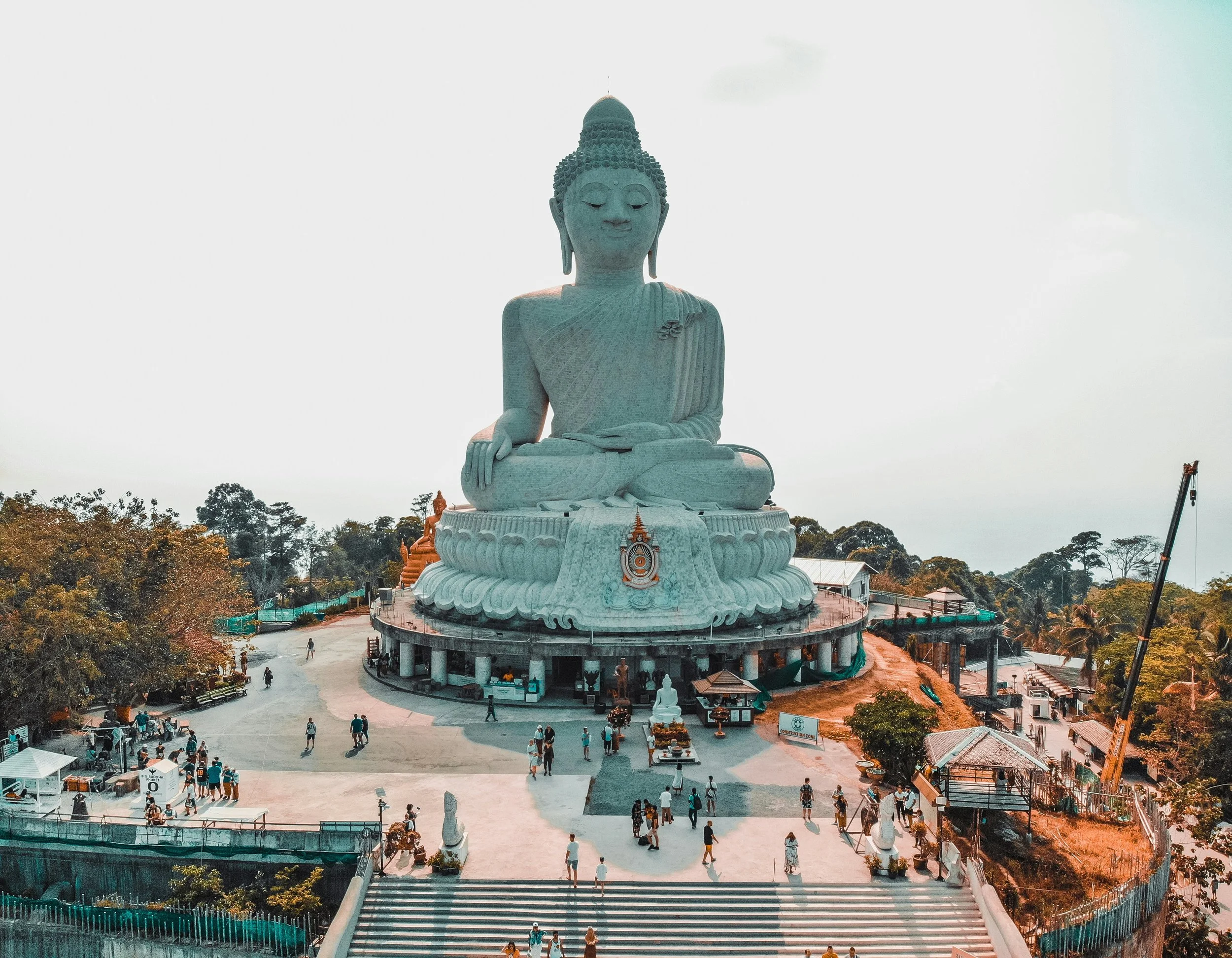

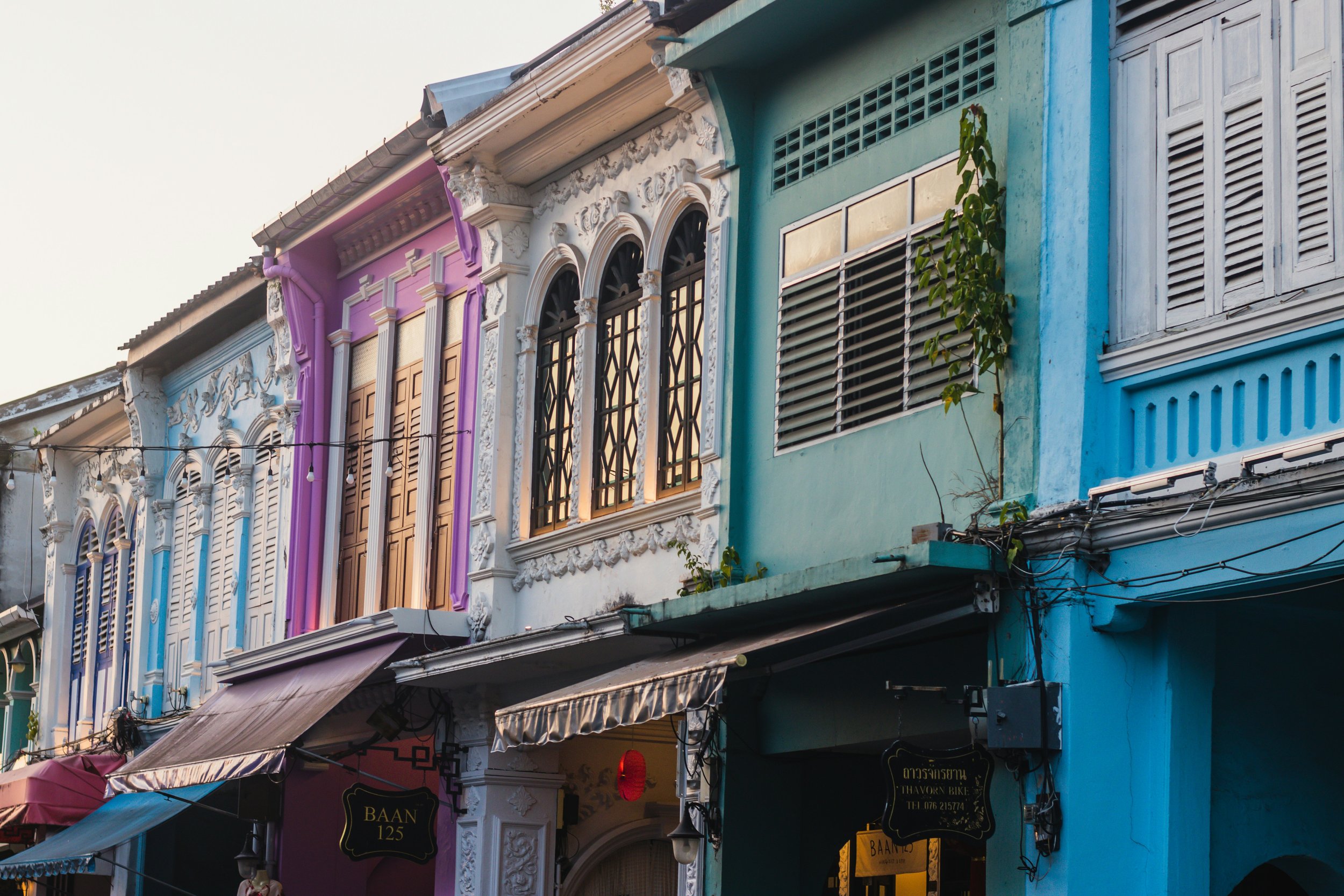
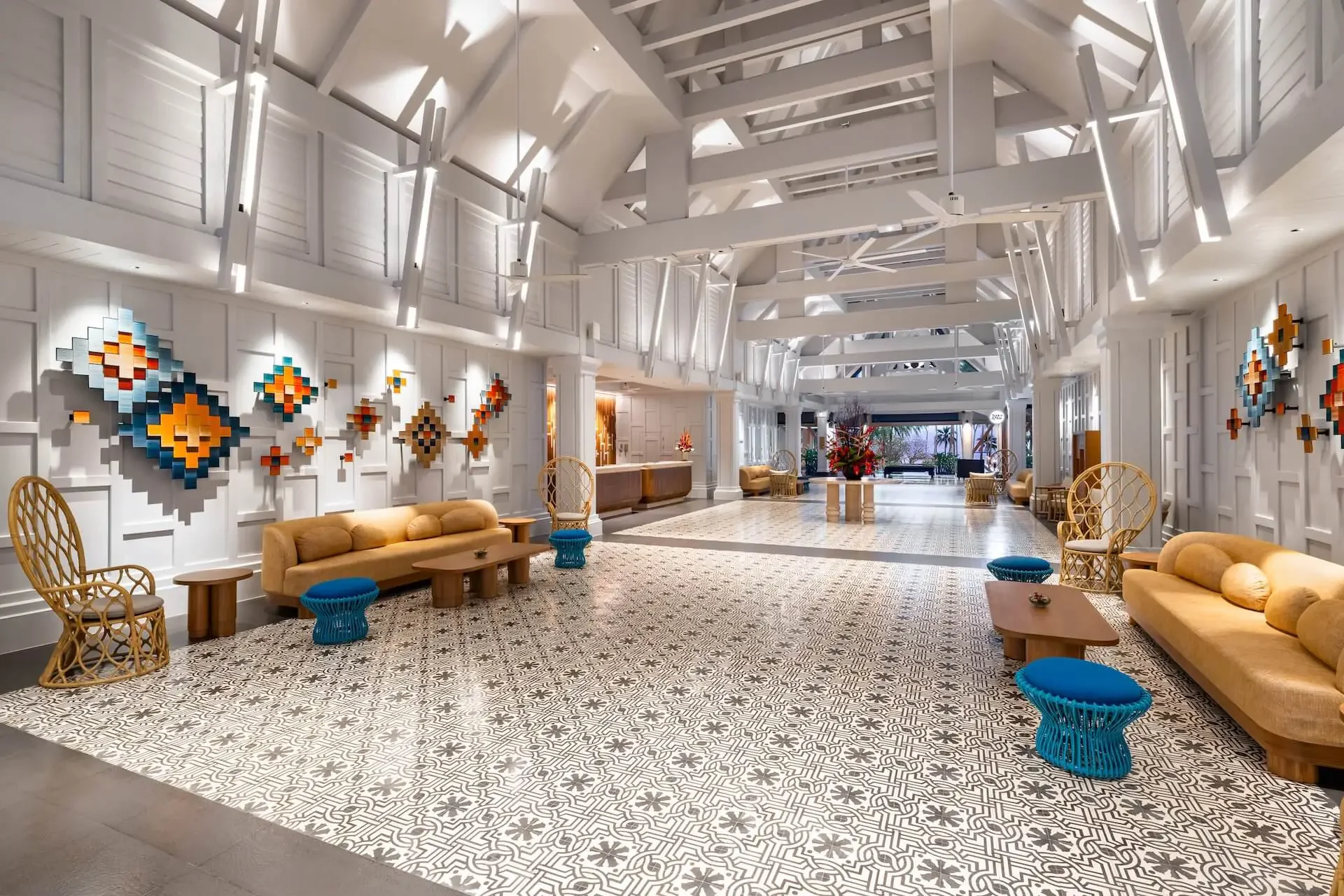
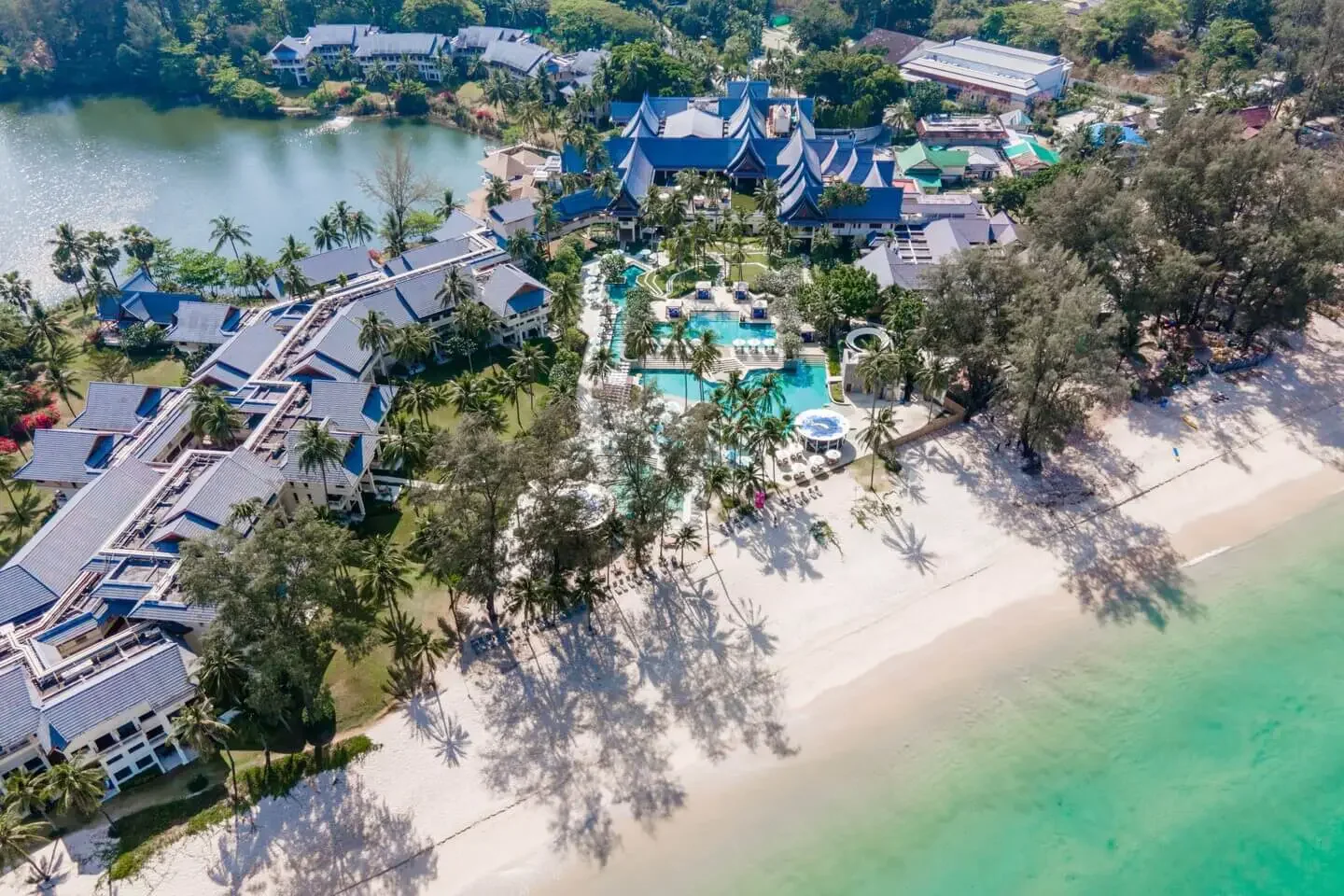
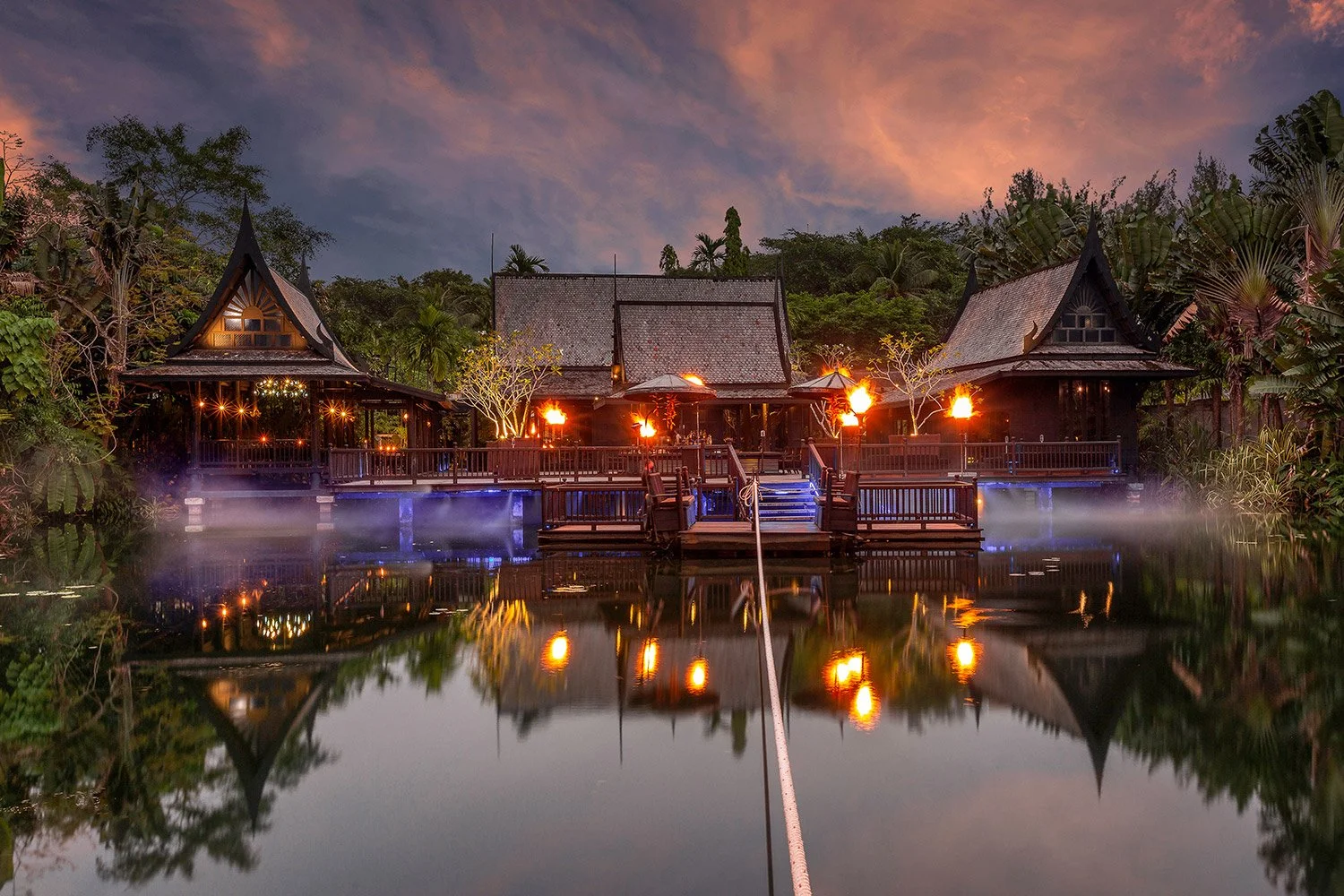
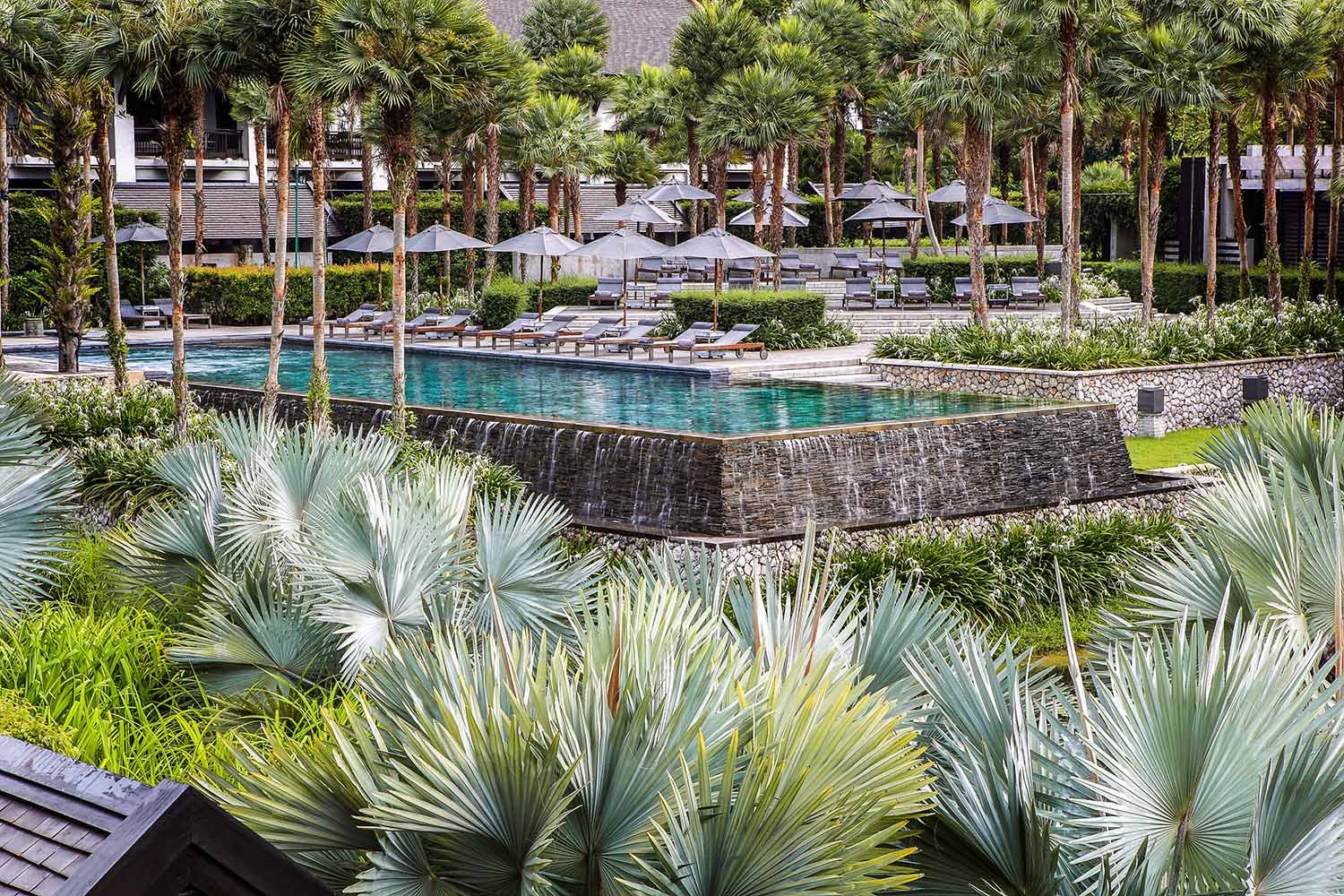
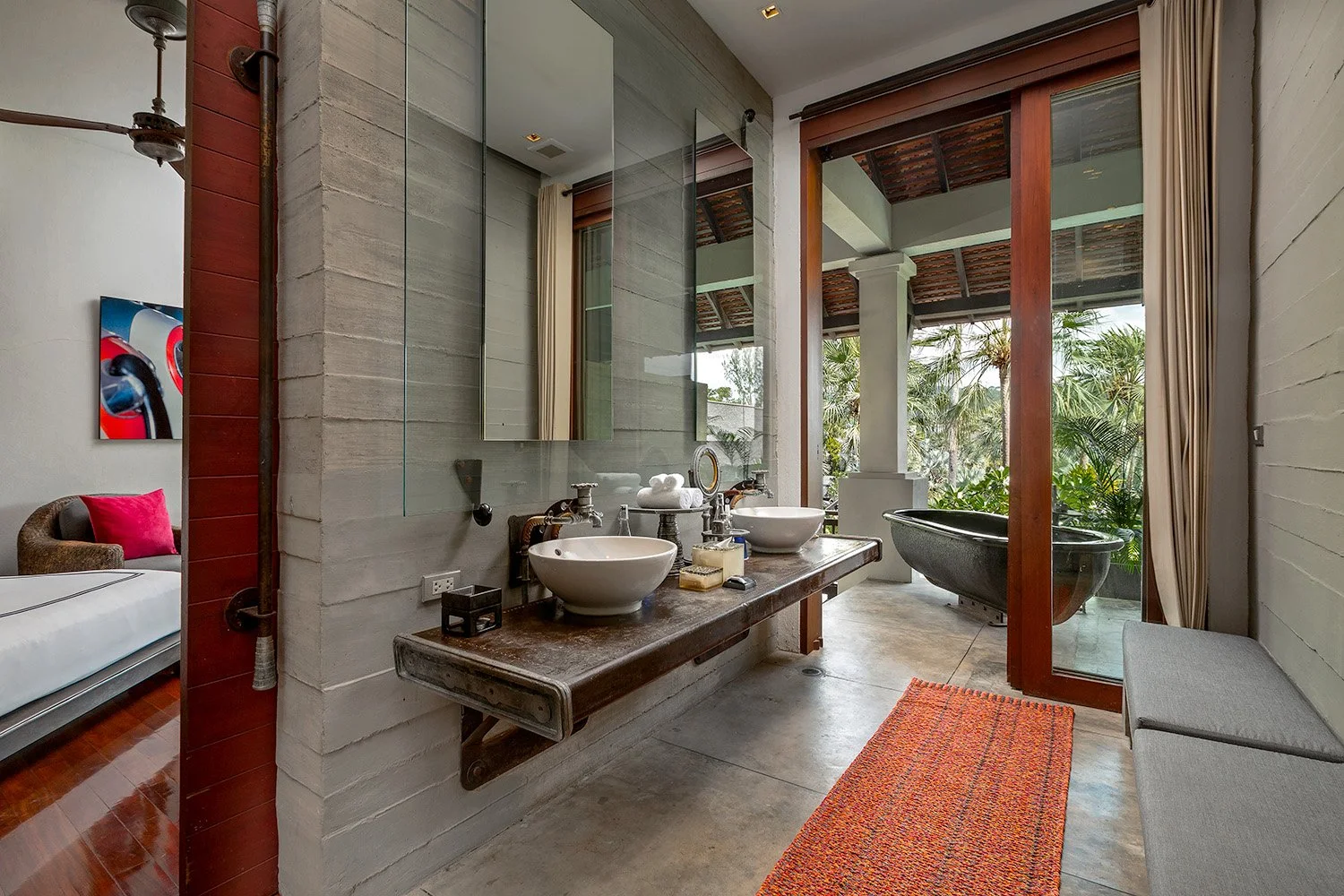
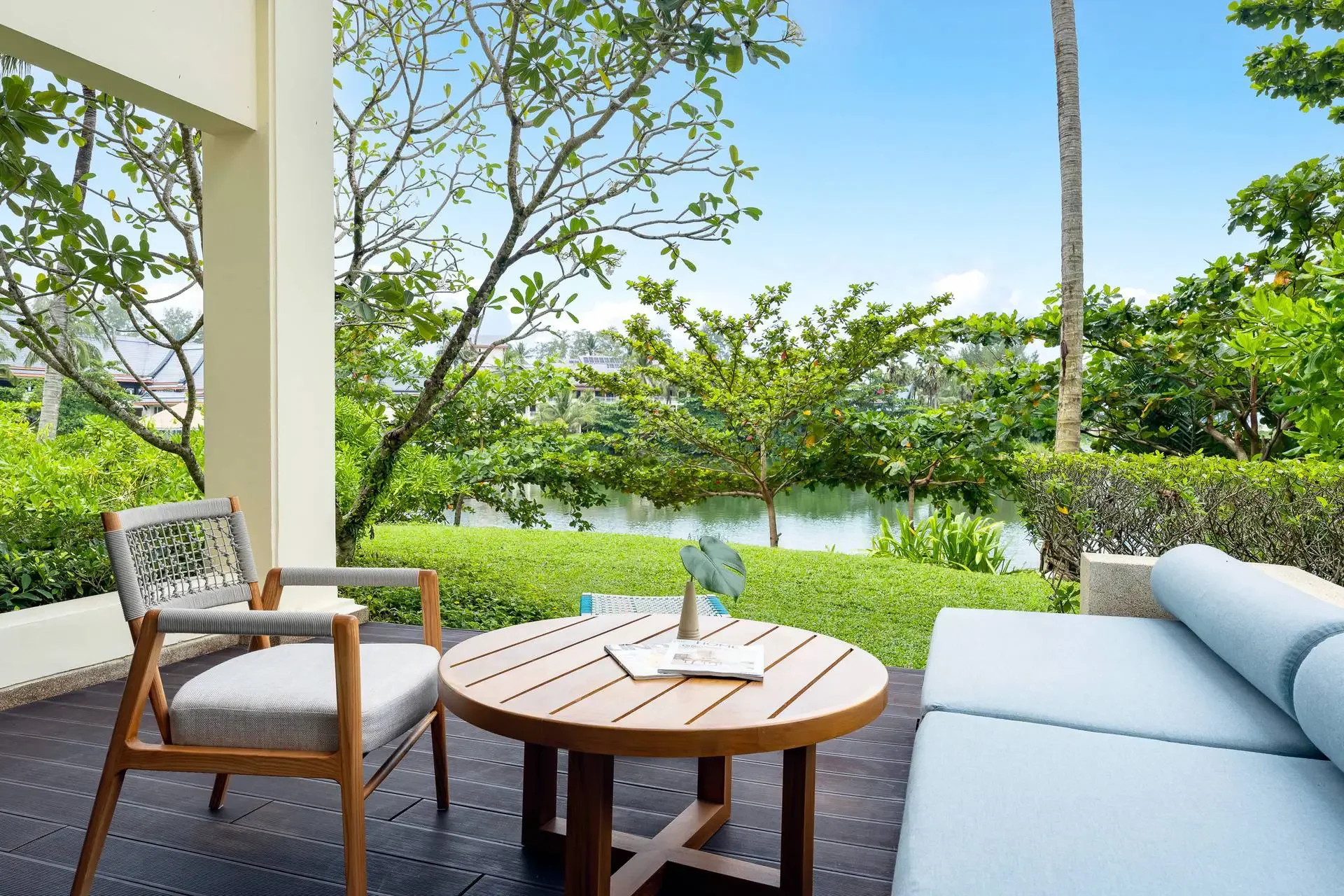
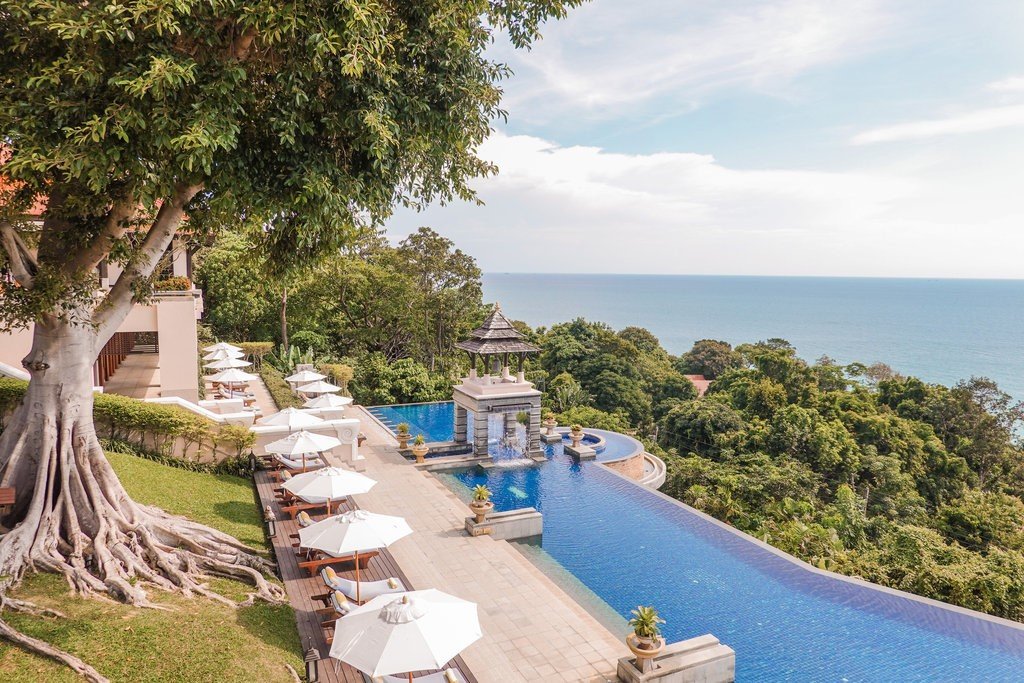

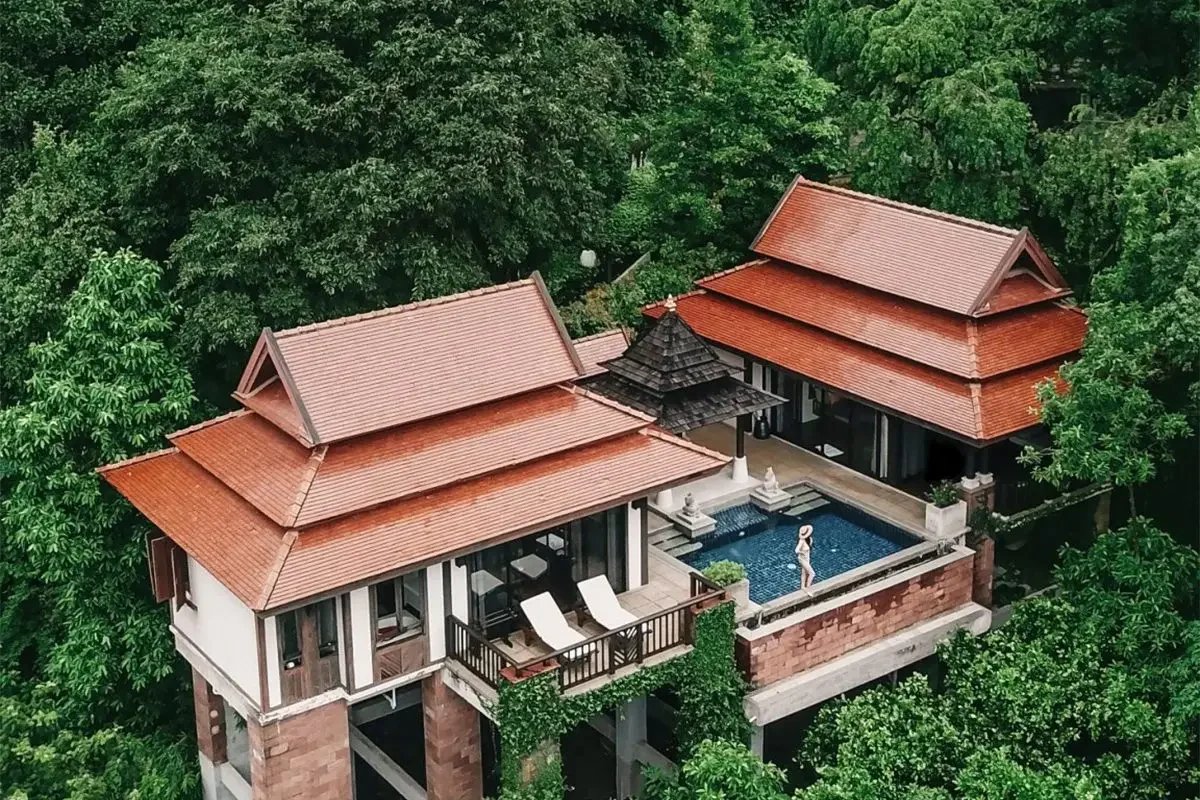
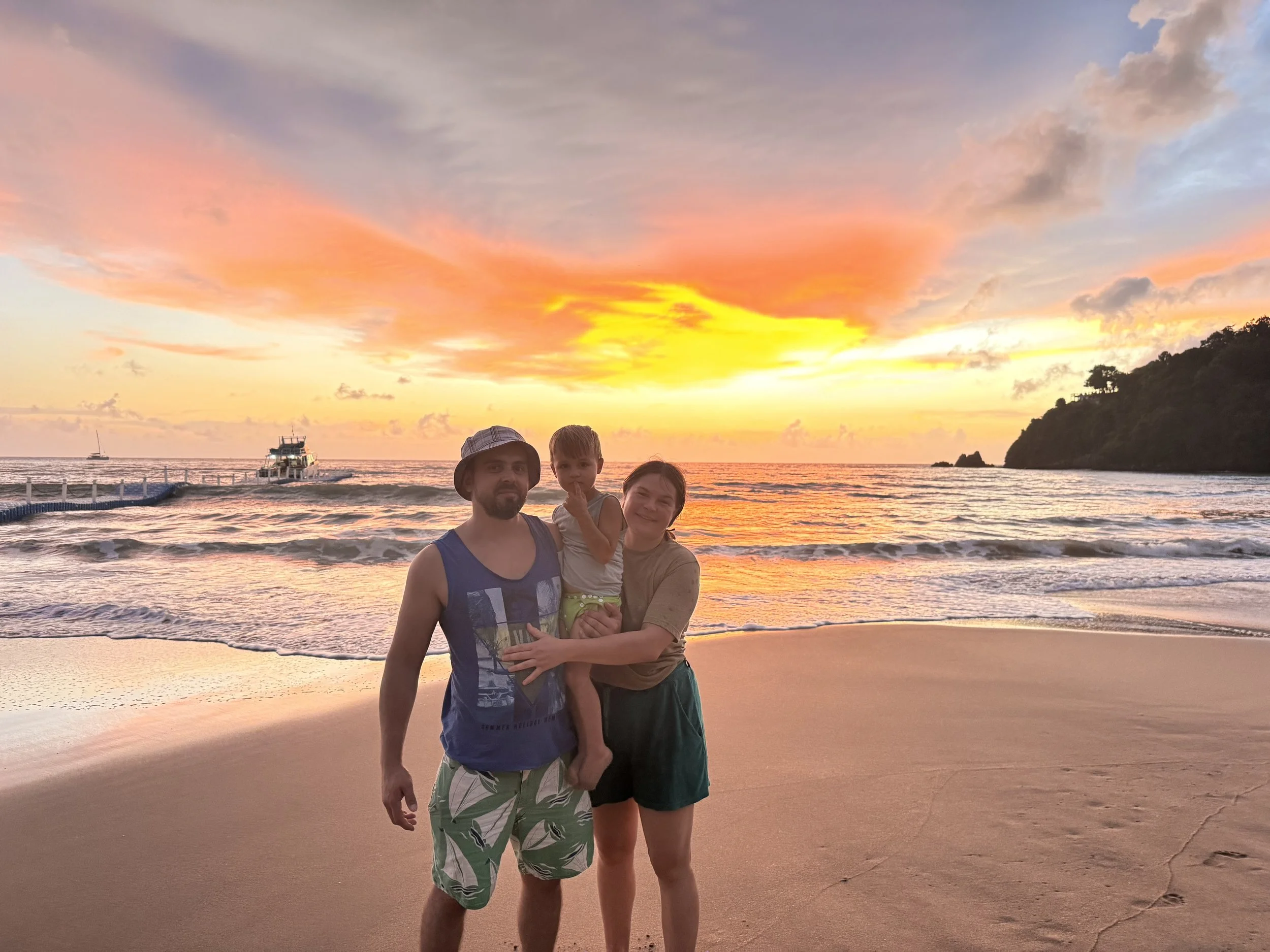
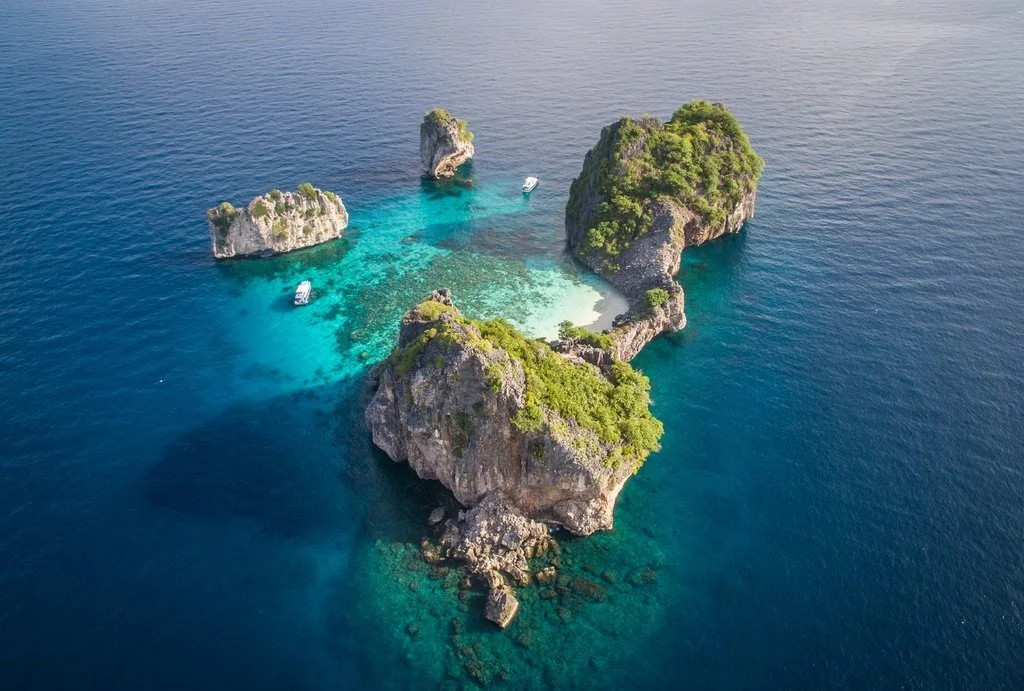
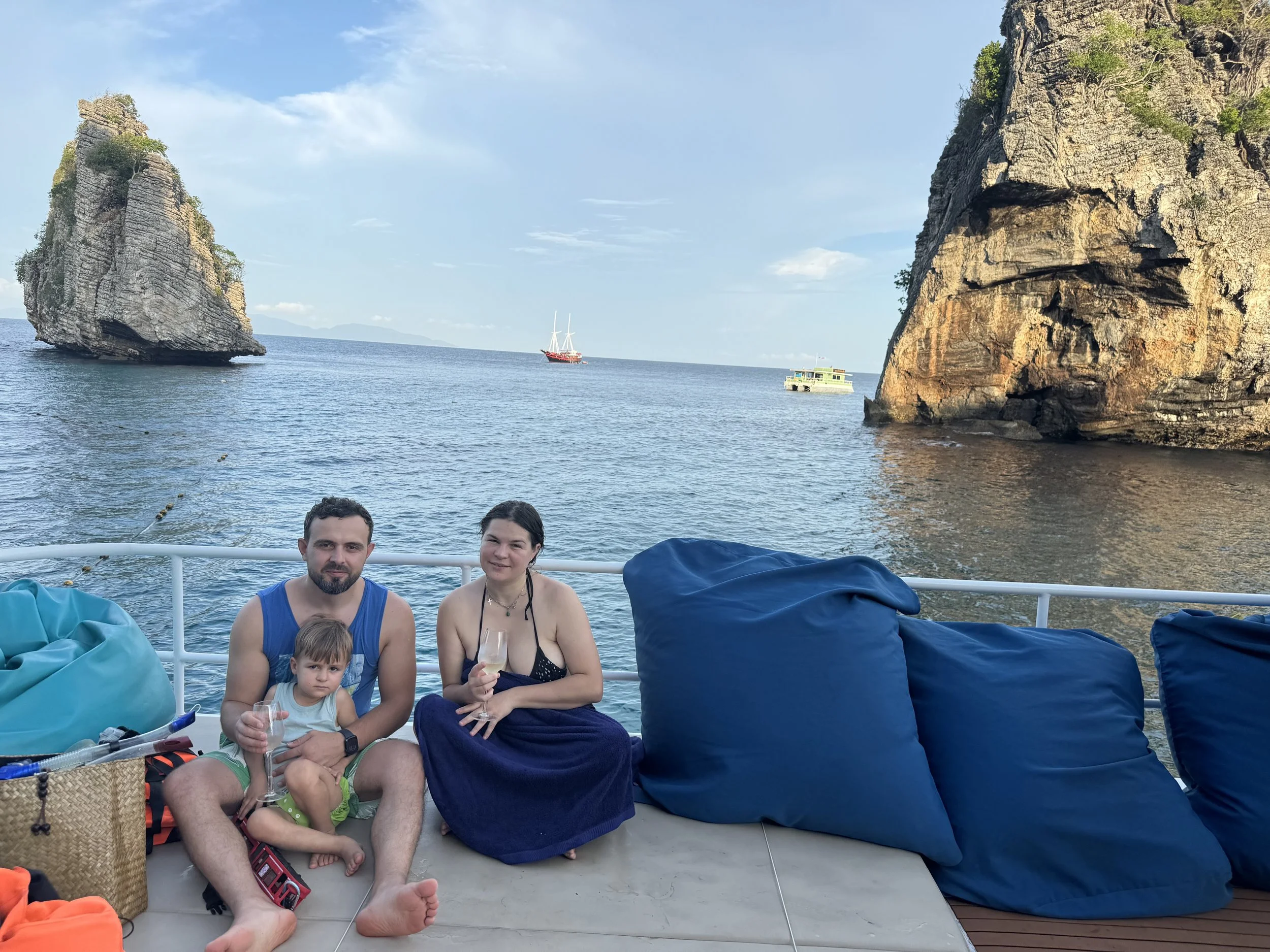
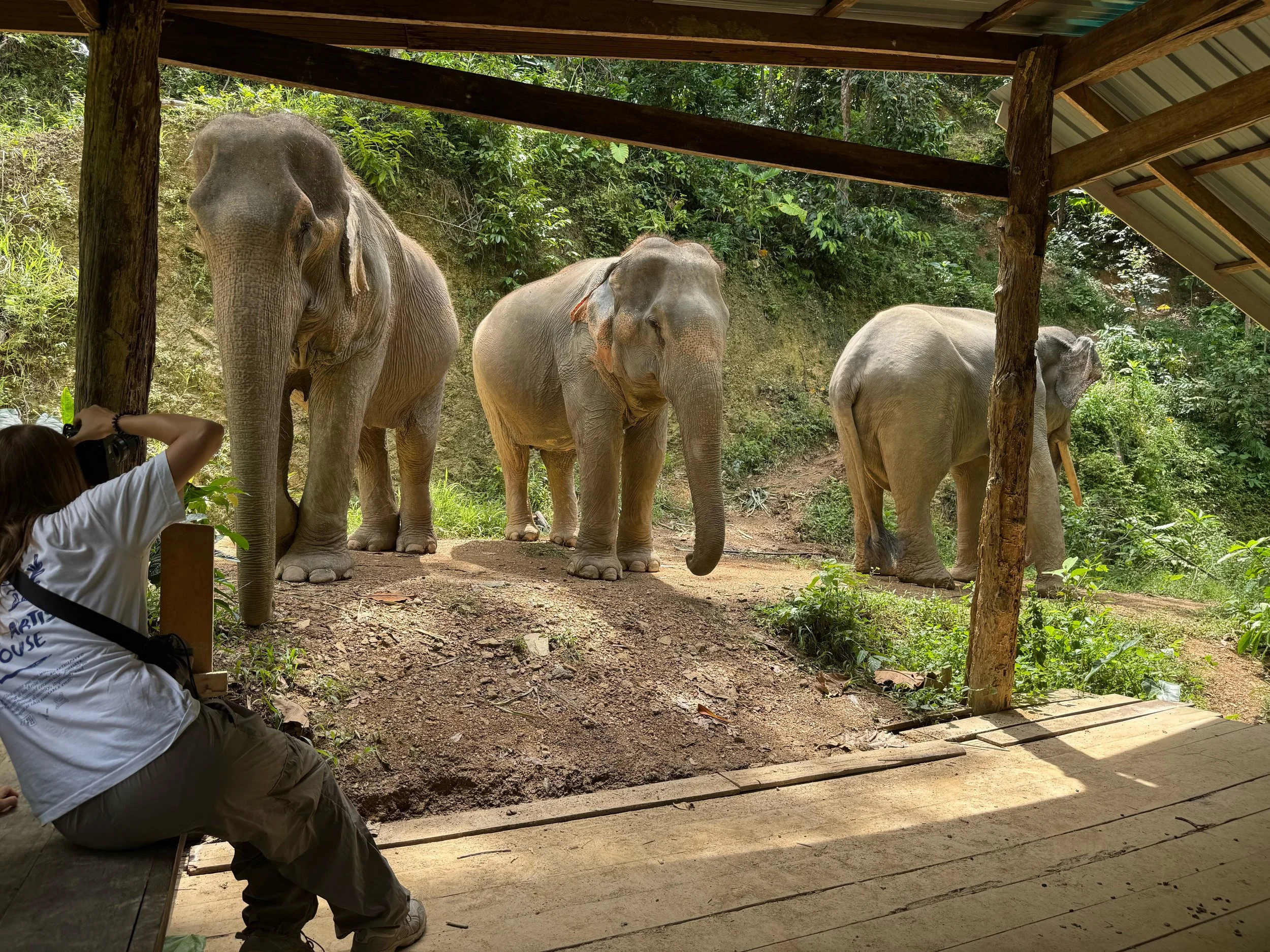
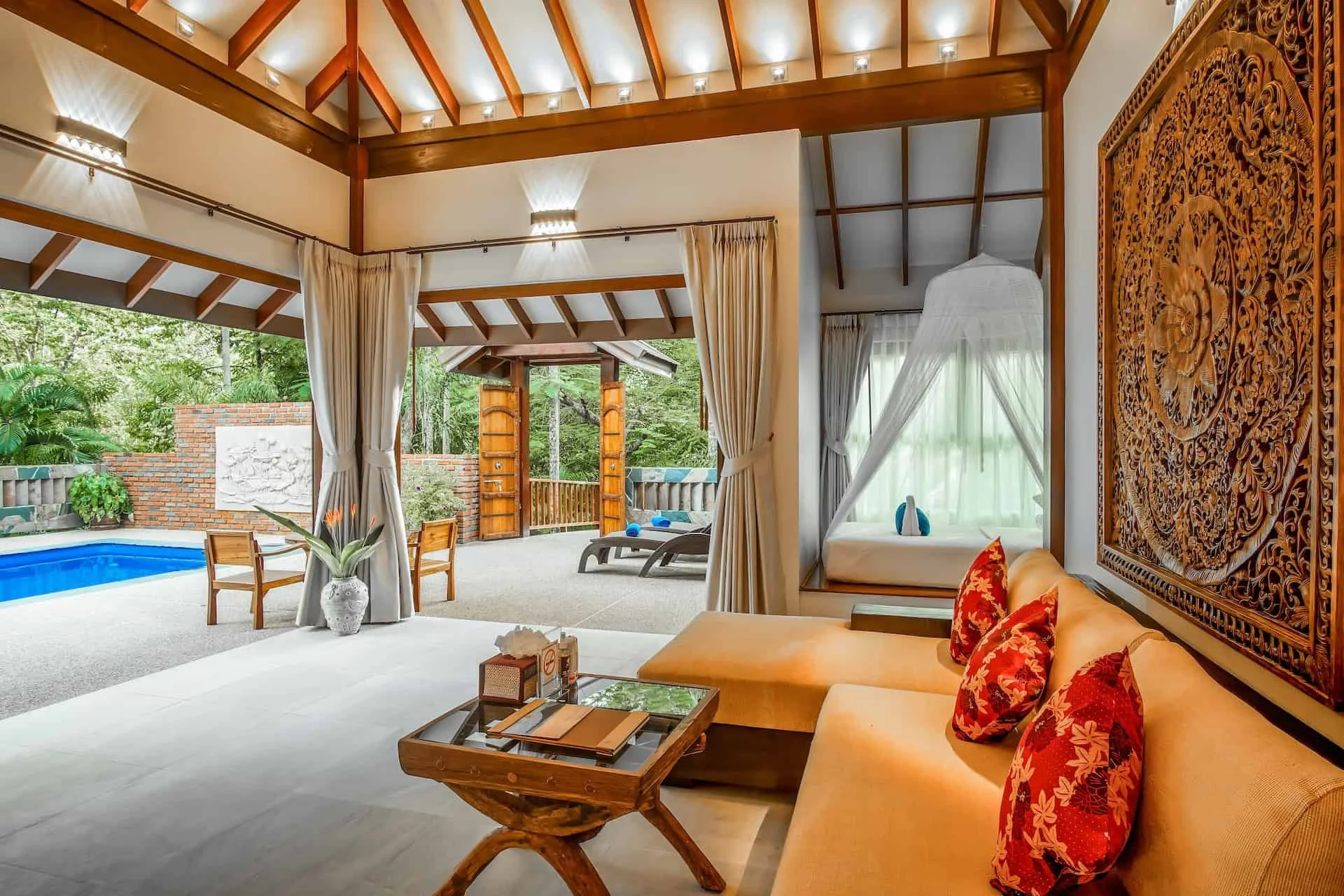

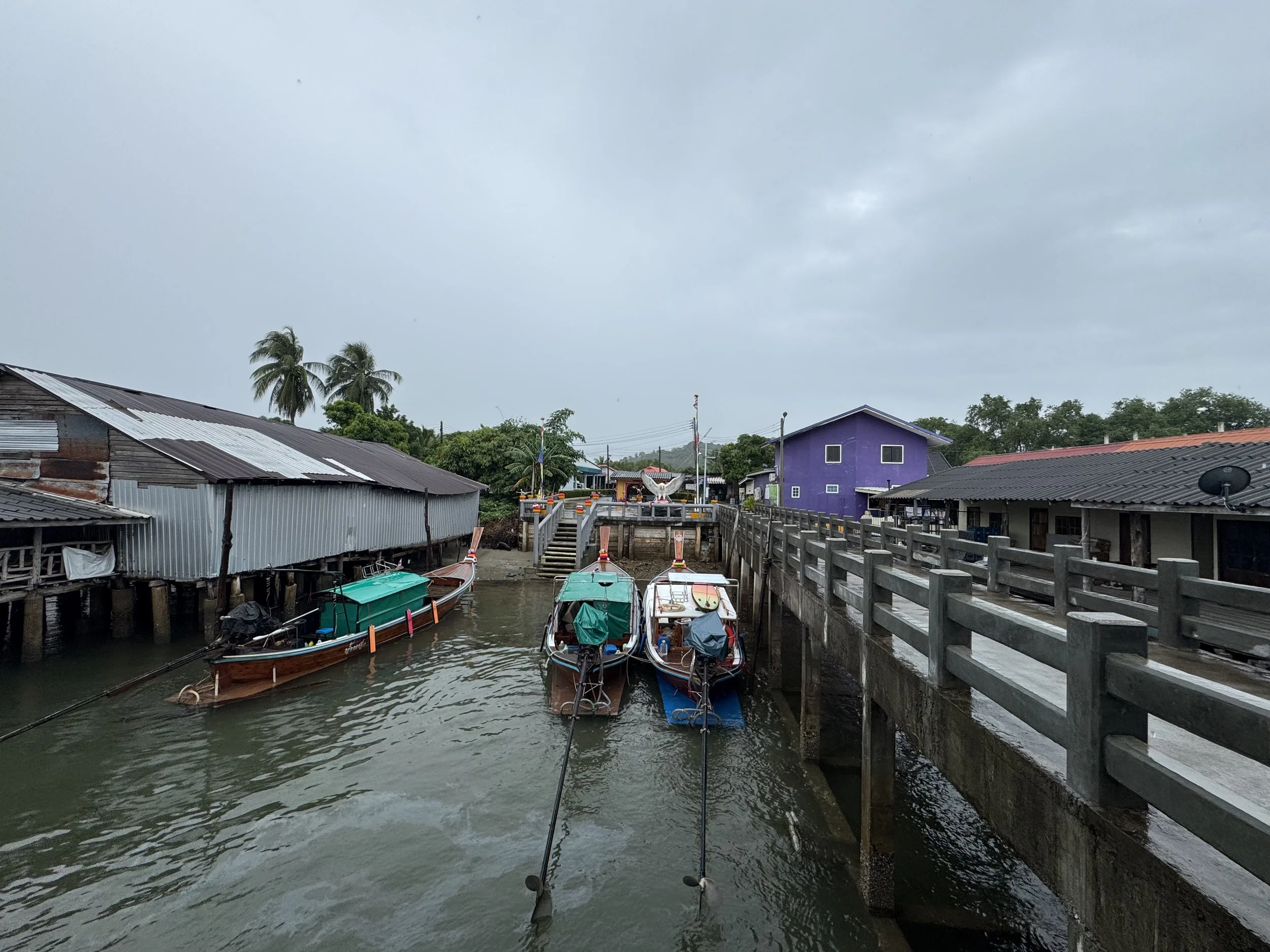





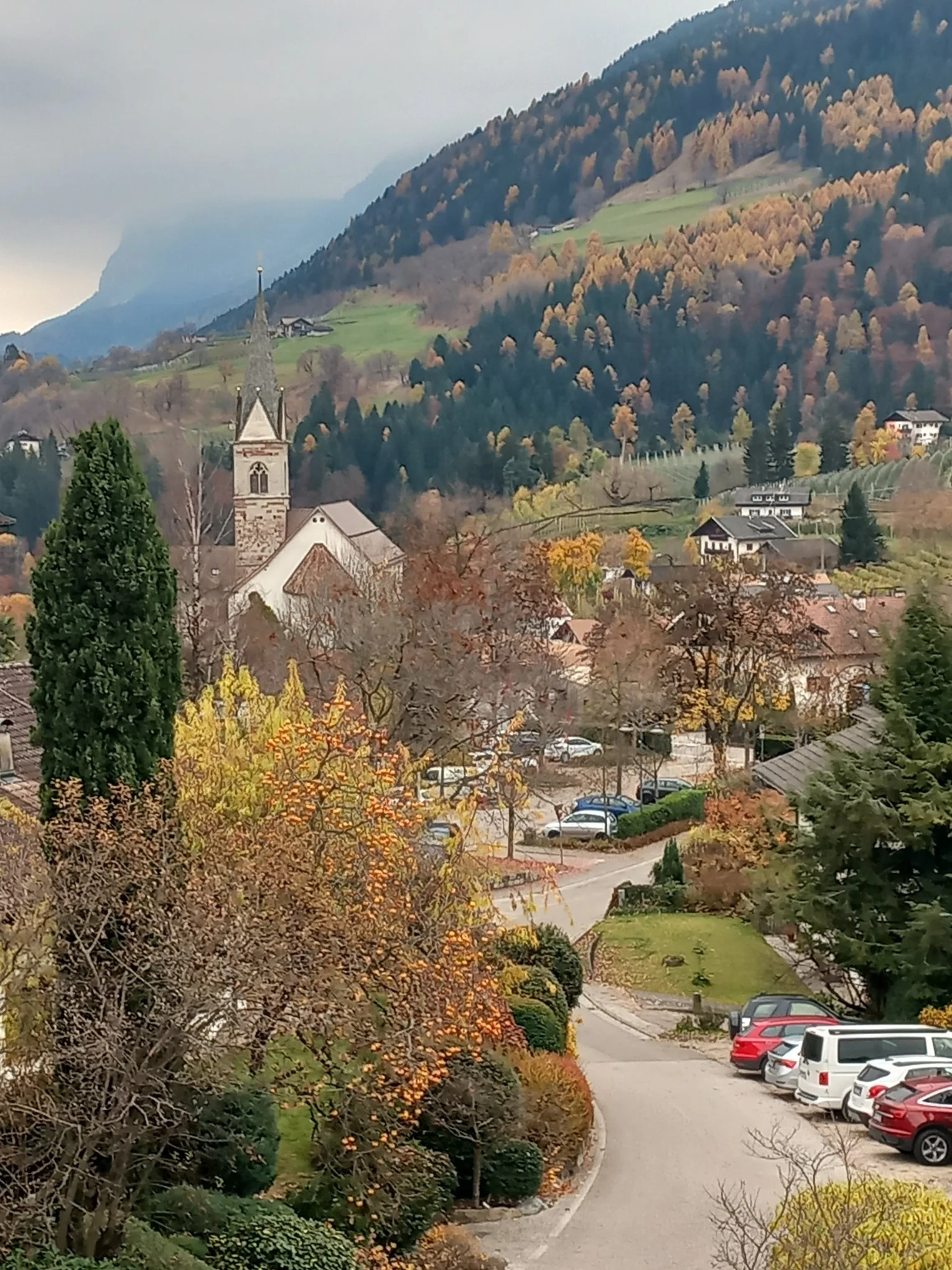















![20251019_100022[1].jpg](https://images.squarespace-cdn.com/content/v1/5cc45faab10f25fda1792c6b/1762194090093-PJK46VW5N1VZ7RM3UF0P/20251019_100022%5B1%5D.jpg)


















![20251021_094700[1].jpg](https://images.squarespace-cdn.com/content/v1/5cc45faab10f25fda1792c6b/1762194796926-U7QG5SSSQF6JUYJEW1Q4/20251021_094700%5B1%5D.jpg)









![20251020_224747[1].jpg](https://images.squarespace-cdn.com/content/v1/5cc45faab10f25fda1792c6b/1762199683445-CLA3WT6KEX29H1VMTP08/20251020_224747%5B1%5D.jpg)
![20251021_110750[1].jpg](https://images.squarespace-cdn.com/content/v1/5cc45faab10f25fda1792c6b/1762200047332-SZ2C9478T3EIV389MLST/20251021_110750%5B1%5D.jpg)
![20251021_104747[1].jpg](https://images.squarespace-cdn.com/content/v1/5cc45faab10f25fda1792c6b/1762200183608-8L0GVFPEQE6HUUEYFV6Q/20251021_104747%5B1%5D.jpg)
![20251021_131034[1].jpg](https://images.squarespace-cdn.com/content/v1/5cc45faab10f25fda1792c6b/1762200236864-GLS66YACX8XJO72L2PVG/20251021_131034%5B1%5D.jpg)
![20251021_121133[1].jpg](https://images.squarespace-cdn.com/content/v1/5cc45faab10f25fda1792c6b/1762200271685-BKF1QQ4UND1NNMVR4RWF/20251021_121133%5B1%5D.jpg)
![IMG-20251021-WA0047[1].jpg](https://images.squarespace-cdn.com/content/v1/5cc45faab10f25fda1792c6b/1762200331410-1TPEMLKAQXX0GU9Y3YSU/IMG-20251021-WA0047%5B1%5D.jpg)
![IMG-20251021-WA0138[1].jpg](https://images.squarespace-cdn.com/content/v1/5cc45faab10f25fda1792c6b/1762200524486-B4LQFOB5DRLK996BEJVB/IMG-20251021-WA0138%5B1%5D.jpg)
![20251022_125321[1].jpg](https://images.squarespace-cdn.com/content/v1/5cc45faab10f25fda1792c6b/1762200552316-7RSJO1MWDJHWNI12OJNB/20251022_125321%5B1%5D.jpg)
![20251022_172959[1].jpg](https://images.squarespace-cdn.com/content/v1/5cc45faab10f25fda1792c6b/1762200606796-A4WLYVRLR8GON3C30NIP/20251022_172959%5B1%5D.jpg)
![IMG-20251022-WA0078[1].jpg](https://images.squarespace-cdn.com/content/v1/5cc45faab10f25fda1792c6b/1762200629622-9OJCQLLD8RWVYK4CBVOM/IMG-20251022-WA0078%5B1%5D.jpg)










